The inter-union is organizing a seventh day of demonstration and mobilization against the pension reform, this Saturday, March 11.
In transport and energy, the strike continues. At the national level, with 368,000 demonstrators according to the Ministry of the Interior, it is the lowest participation since the beginning of this social movement. Tensions erupted in the Parisian procession, in particular.
Denouncing the “contempt” of Emmanuel Macron, who refuses to receive it, the inter-union calls for a citizen consultation on the pension reform.
“The united intersyndicale denounces the contempt in which Emmanuel Macron stubbornly refuses to receive it. (…) It solemnly asks the government to organize a citizen consultation on this subject as soon as possible”, is it indicated in a statement.
Ahead of the Parisian demonstration, union officials called on Emmanuel Macron to “consult the people” on pension reform. “Since he is so sure of himself, the President of the Republic, he only has to consult the people. We will see the response of the people”, said the secretary general of the CGT, Philippe Martinez. “No doubt we must go to a citizen consultation,” said his CFDT counterpart, Laurent Berger. “I implore those who run this country to get out of this form of denial of the social movement”, he added, expressing the “stunned” activists faced with the end of inadmissibility of the President of the Republic. .
According to the CGT, there were more than 1 million demonstrators in France this Saturday. This is the lowest figure put forward by the central trade union since the beginning of the social movement, lower than the 1.3 million demonstrators of February 16.
368,000 demonstrators in France, including 48,000 in Paris, according to the Ministry of the Interior
Official figures from protests against pension reform show a sharp decline. According to the Interior Ministry, there were 368,000 people on the streets in France this Saturday, including 48,000 in Paris.
This is the lowest participation in demonstrations at the national level since the beginning of this social movement. On February 16, 440,000 people demonstrated according to the police (1.3 million according to the CGT).
On February 11, for the previous Saturday of union mobilization, there were 963,000 demonstrators in France and 93,000 in Paris according to the Ministry of the Interior.
In the Paris procession, the CGT was the victim “of projectiles thrown by radical elements”, according to the police headquarters. The head of the procession of the Parisian demonstration arrived at Place de la Nation around 5:30 p.m., after leaving around 2:30 p.m. from Place de la République.
Demonstrators against the pension reform were significantly fewer on Saturday for the seventh day of mobilization, often below the previous minimum recorded on February 16, according to figures from the authorities and unions, after reaching record levels on Tuesday.
“The days do not compare, they add up”, justified the secretary general of the UNSA, Laurent Escure, at the head of the Parisian procession.
Admittedly, his hope of seeing her buried has largely crumbled since January, but the spokesperson for the Association for the taxation of financial transactions and for citizen action (Attac) is there, “realistic”, as he was of all marches, because “this struggle will have laid an important stone for the future in the field of social mobilization”.
“Even if this retirement at 64 is voted, an unpublished message has been sent to Macron: “No, you do not have a free hand to decide alone”, wants to believe the 50-year-old. It has been a long time since the trade unions had stood up, without bending and with the support of the population. The whole challenge now is to continue this social movement of ideas. “Ecology, distribution of wealth, rising wages, taxation of the richest: for the head of Attac, the program of future fights is already set. And the victories, or their hope at least, will rest on the ability to sustain “this rare popular momentum”.
Several sectors have maintained or intensified renewable strikes since March 7. The situation is variable in refineries. That of Esso-ExxonMobil in Fos-sur-Mer (Bouches-du-Rhône) has again been blocked since Friday afternoon, like that of TotalEnergies in Donges, near Saint-Nazaire. On Friday, the neighboring TotalEnergies refinery at La Mède also remained blocked, while that of Petroineos should also be blocked until Monday morning, according to the CGT.
On the electricity production side, one of the main weapons of the strikers, the CGT Energie mentioned new voluntary power cuts and gas strikes in all LNG terminals and gas storage today. Since March 7, the CGT Mines-Energie has claimed production cuts throughout France. On March 7 alone, the strikers got their hands on 21,000 megawatts (MW) of electricity production at EDF, according to the union, including 13,000 from thermal and nuclear power plants (the equivalent of a dozen power plants ), and 8,000 of hydroelectric power in the dams. Lower production figures that would have lasted more moderately during the week.
Faced with the silence of the government, the unions warn against a hardening always possible, in this sector which represents an important lever of pressure. “There are voices that have been rising for several days to say: since the government remains deaf, we have to do harder”, warned Friday Fabrice Coudour, secretary general of the CGT Energie.
The transport sector remains one of the most mobilized. After an already chaotic week for users, weekend traffic forecasts “remain severely disrupted”, according to SNCF, with half of the TGV Inoui and Ouigo removed, as well as 60% of the TER. It also calls on its users to “cancel or postpone their trips this weekend”. High-speed traffic will be particularly reduced on the North and Atlantic routes with 60% of trains eliminated, while on the East, South-East and Ouigo routes, there will be one train out of two.
At the RATP, the blockages calm down on the fifth day of a renewable strike. Traffic will be “normal with the exception of a few lines” of metros in Paris: two out of three trains are planned on line 11 in the afternoon, and three out of four trains on line 6, also in the afternoon. As on previous days, the bus and tram networks will operate normally. RER A and B will remain “disturbed”, according to the Régie. There will be only one train out of two on RER A and two out of three on RER B (with interruption of the interconnection at Gare du Nord) today. Sunday, traffic will be normal on almost all metro lines, except on 13 where it will be “almost normal”, the Régie announced on Saturday.
On the air transport side, the controllers’ strike prompted the General Directorate of Civil Aviation (DGAC) to ask airlines to cancel 20% of their flights scheduled for this Saturday and Sunday at several airports, in particular “at the start and arrival from the airports of Paris-Orly, Marseille, Toulouse, Nantes and Bordeaux”.
Young people join unions to resist pension reform. More than 30 universities have been blocked and demonstrated in France against the reform imposed by the government of Emmanuel Macron.
High school students and students stand together to demonstrate that young people are on the streets like in May 68, or in 1995 and 2016, they hope that the president will keep their opinion. Otherwise, high school and university youth will revolt as in 1968 or 1995, they said today during the demonstration.


















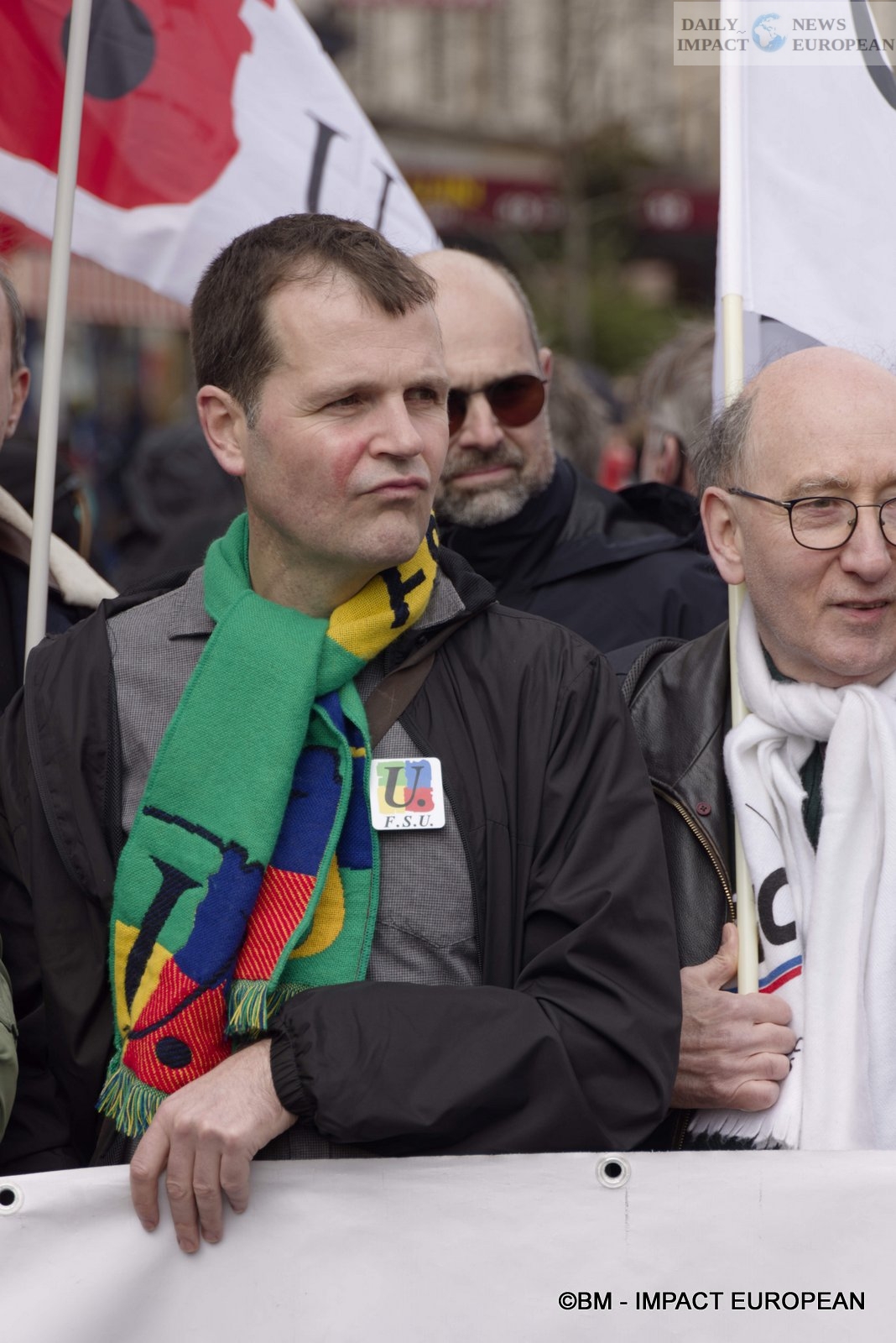








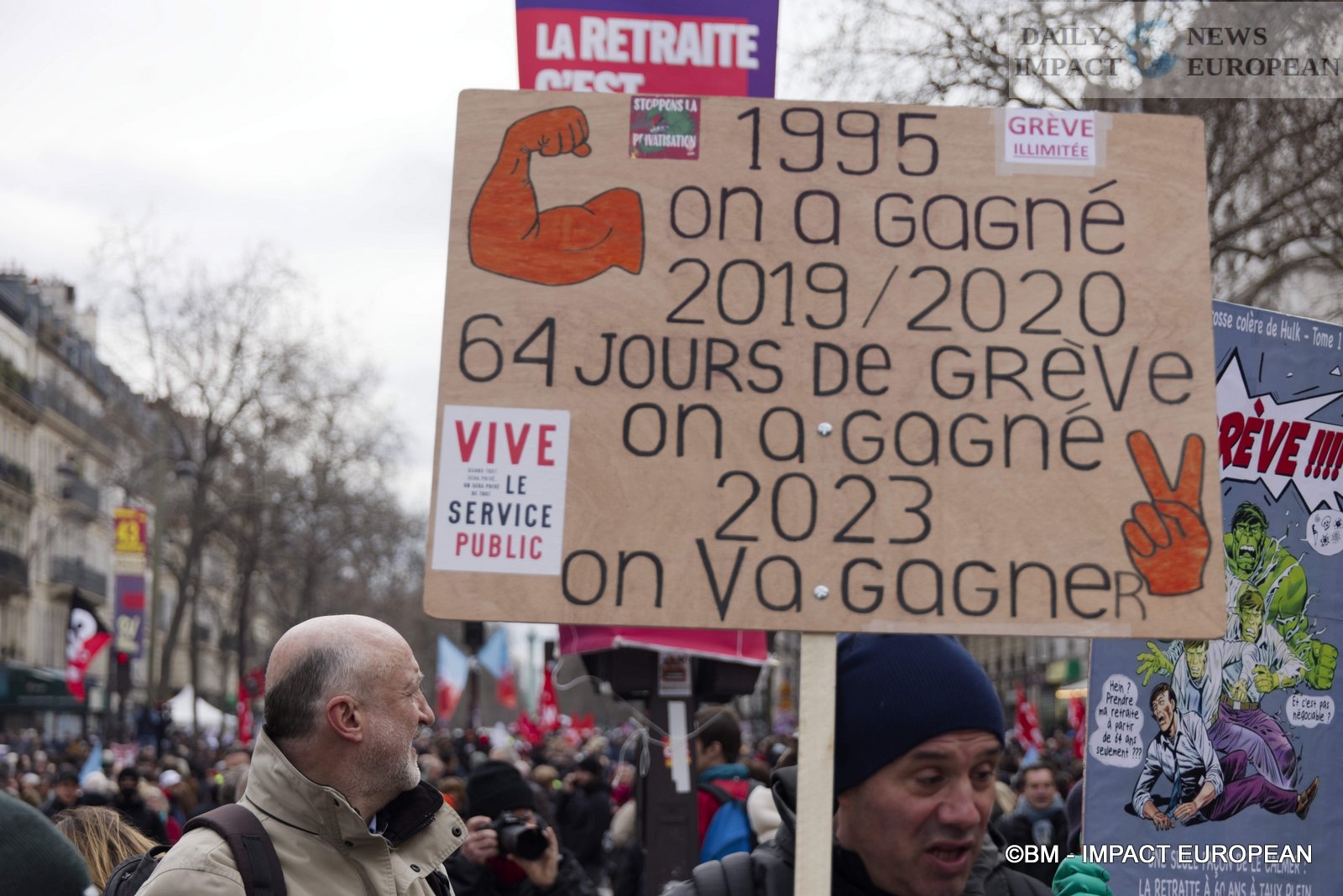











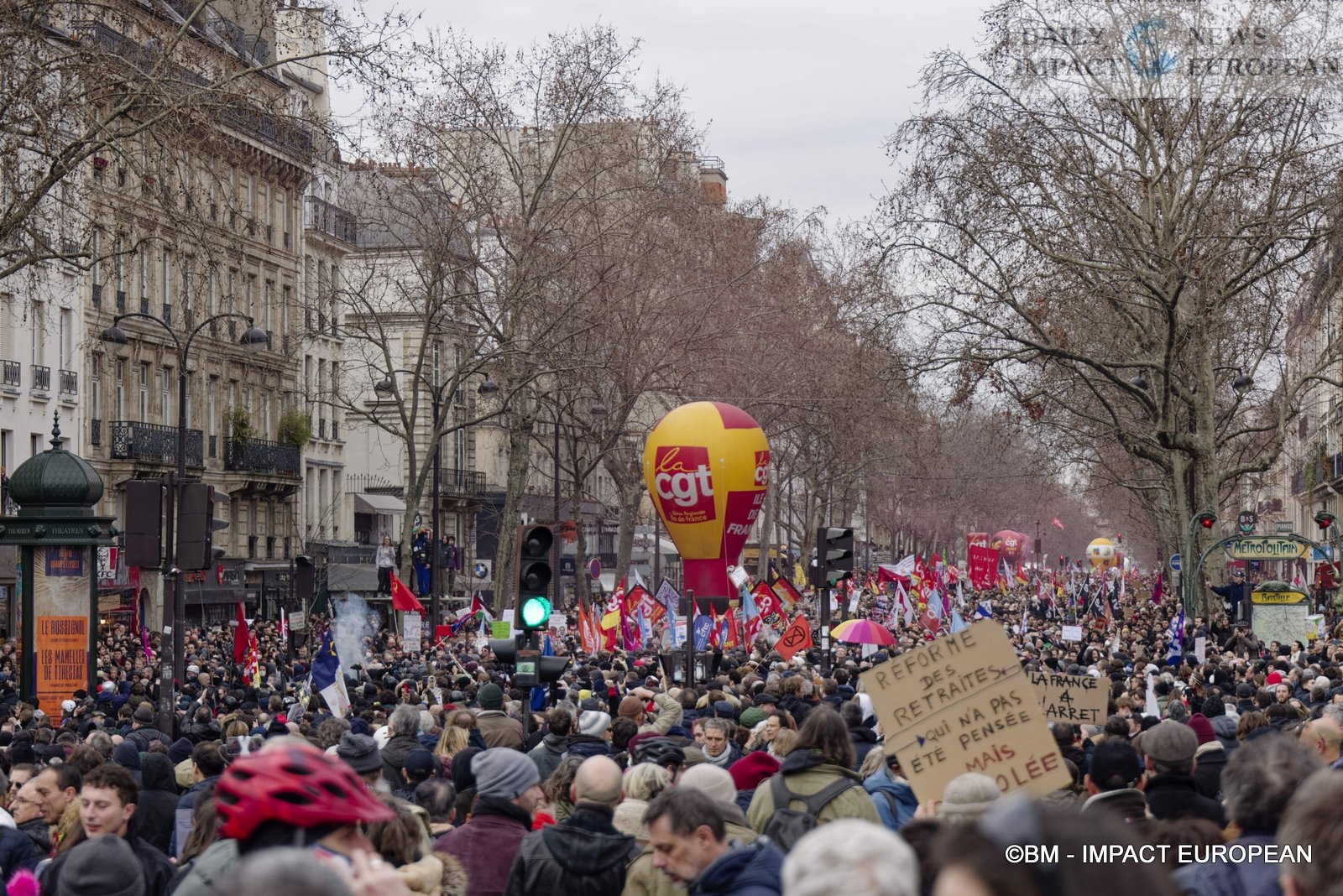
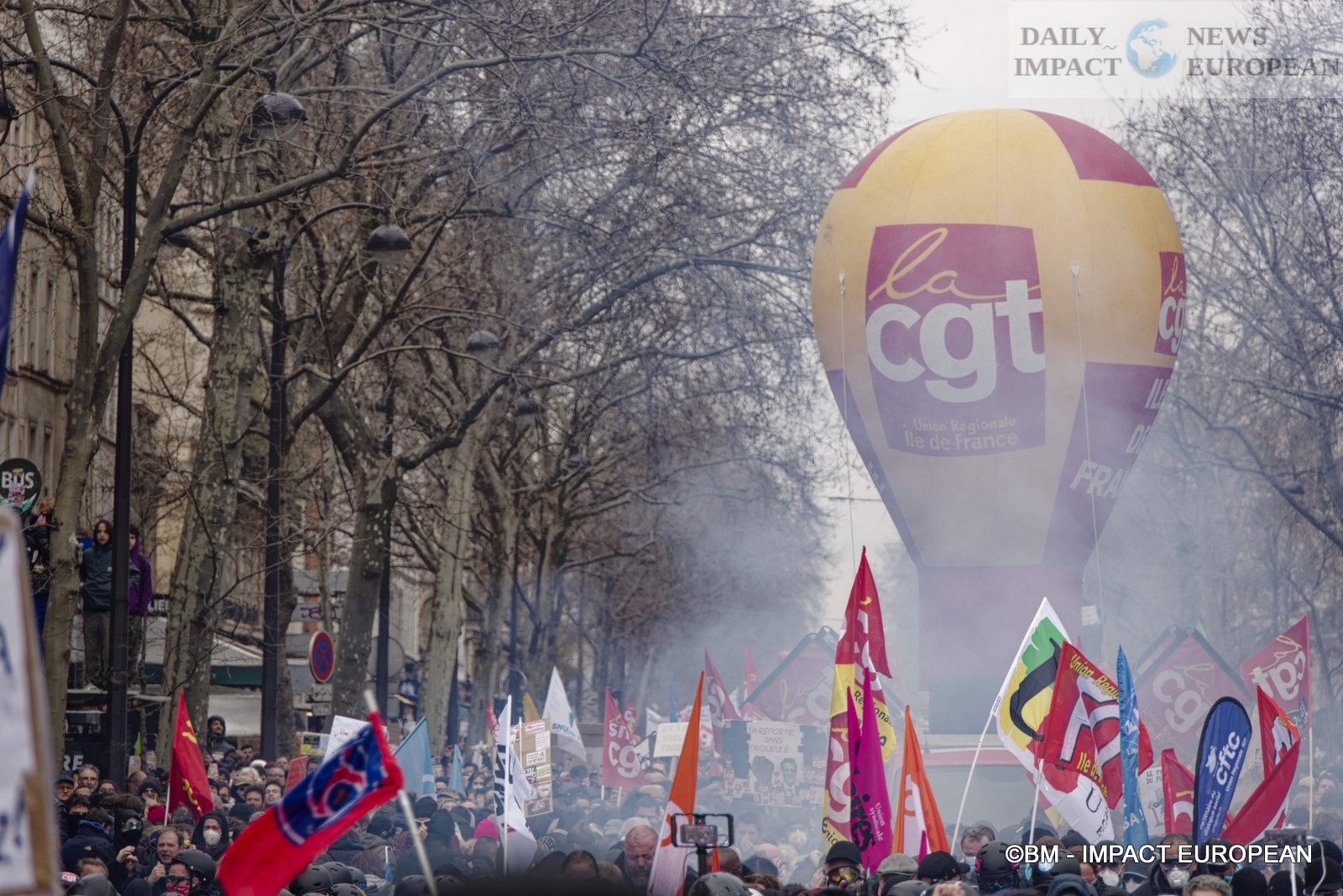

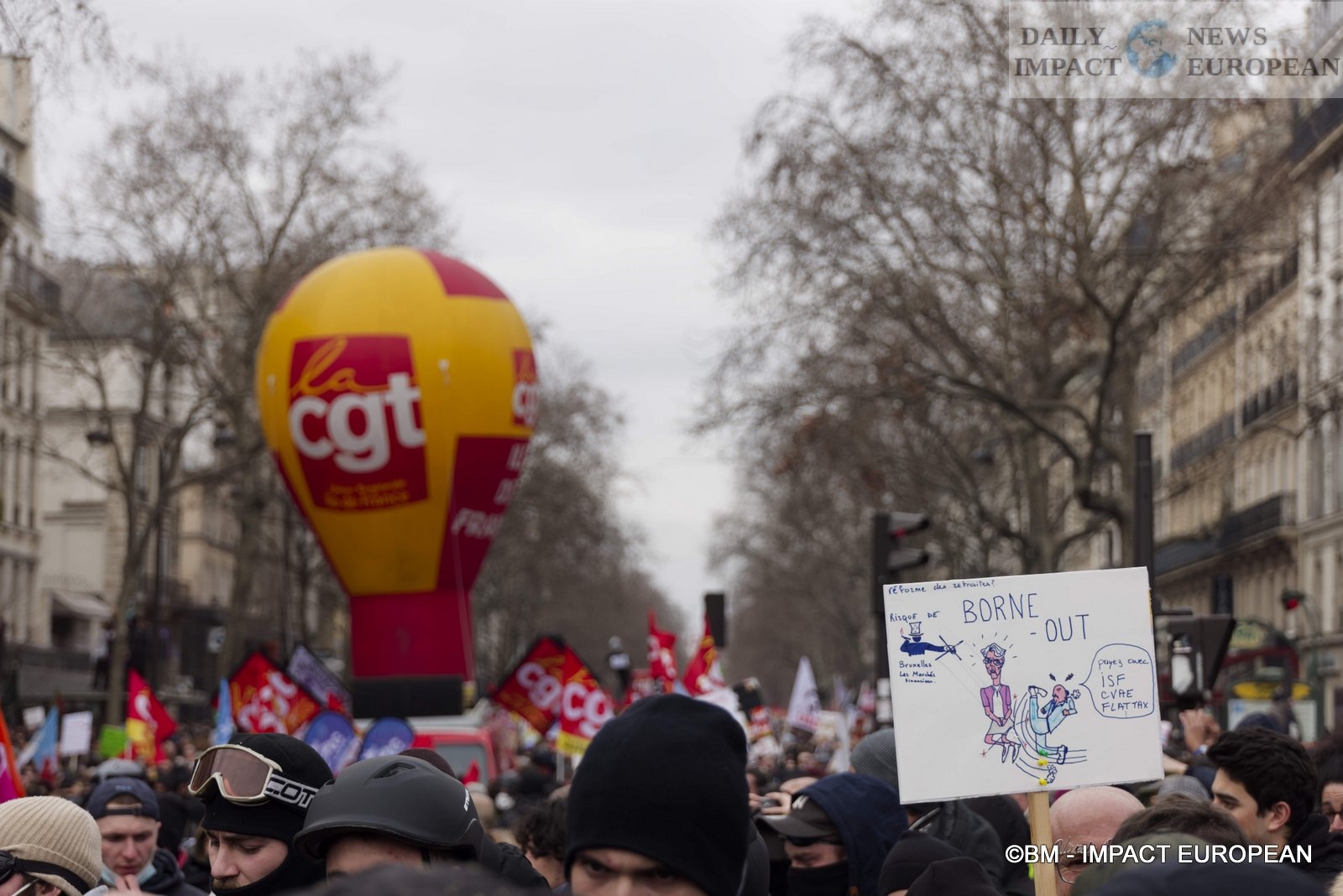
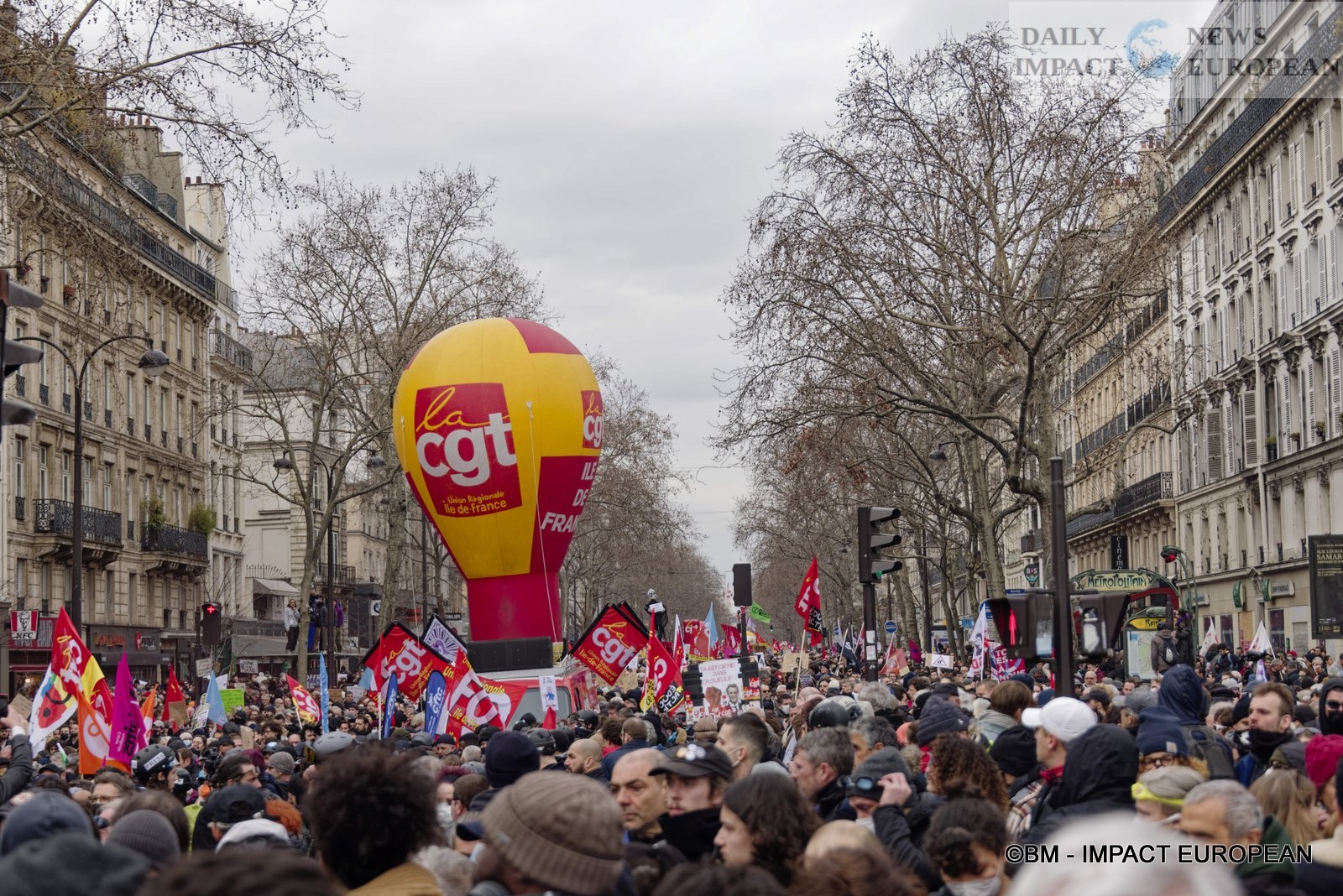





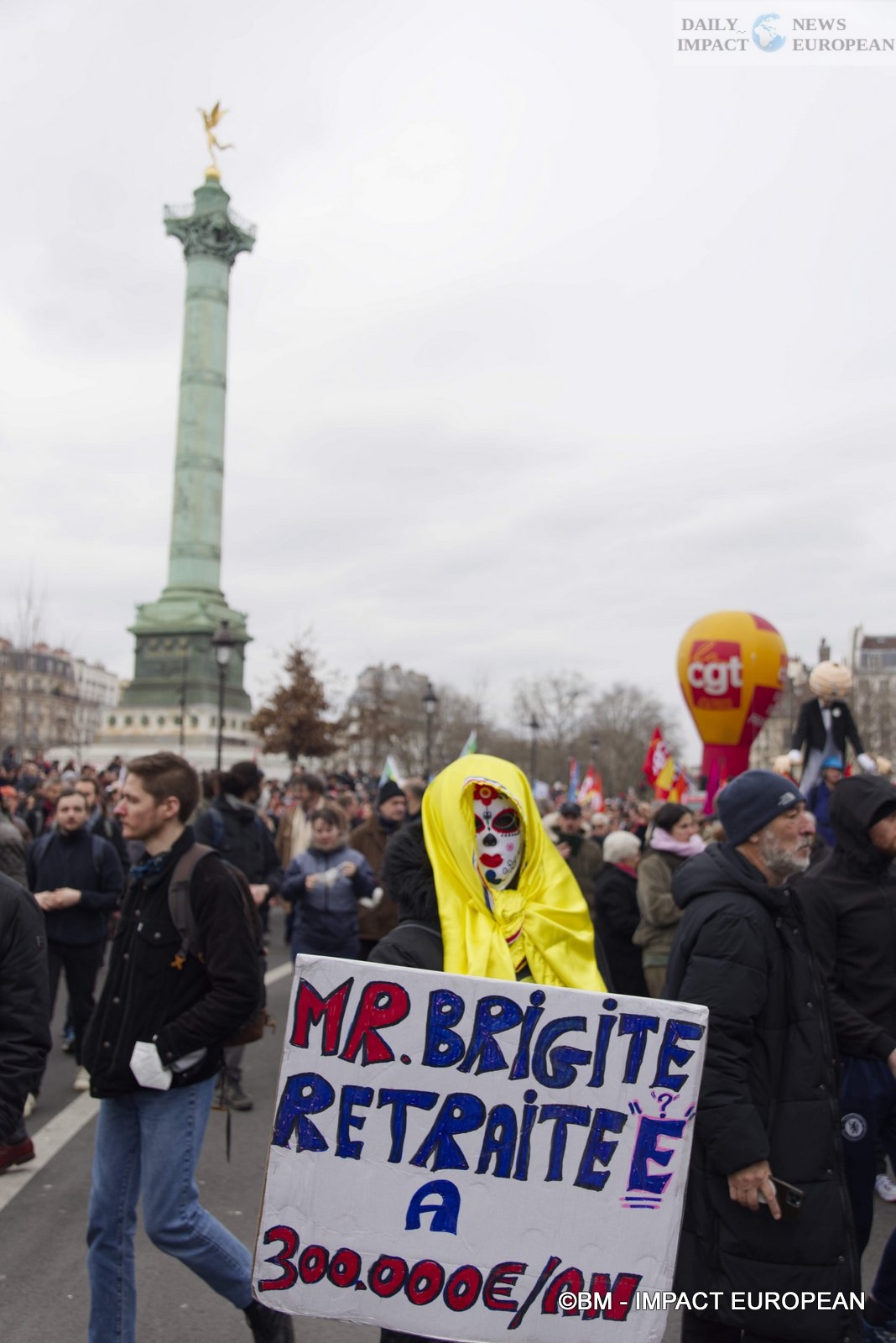







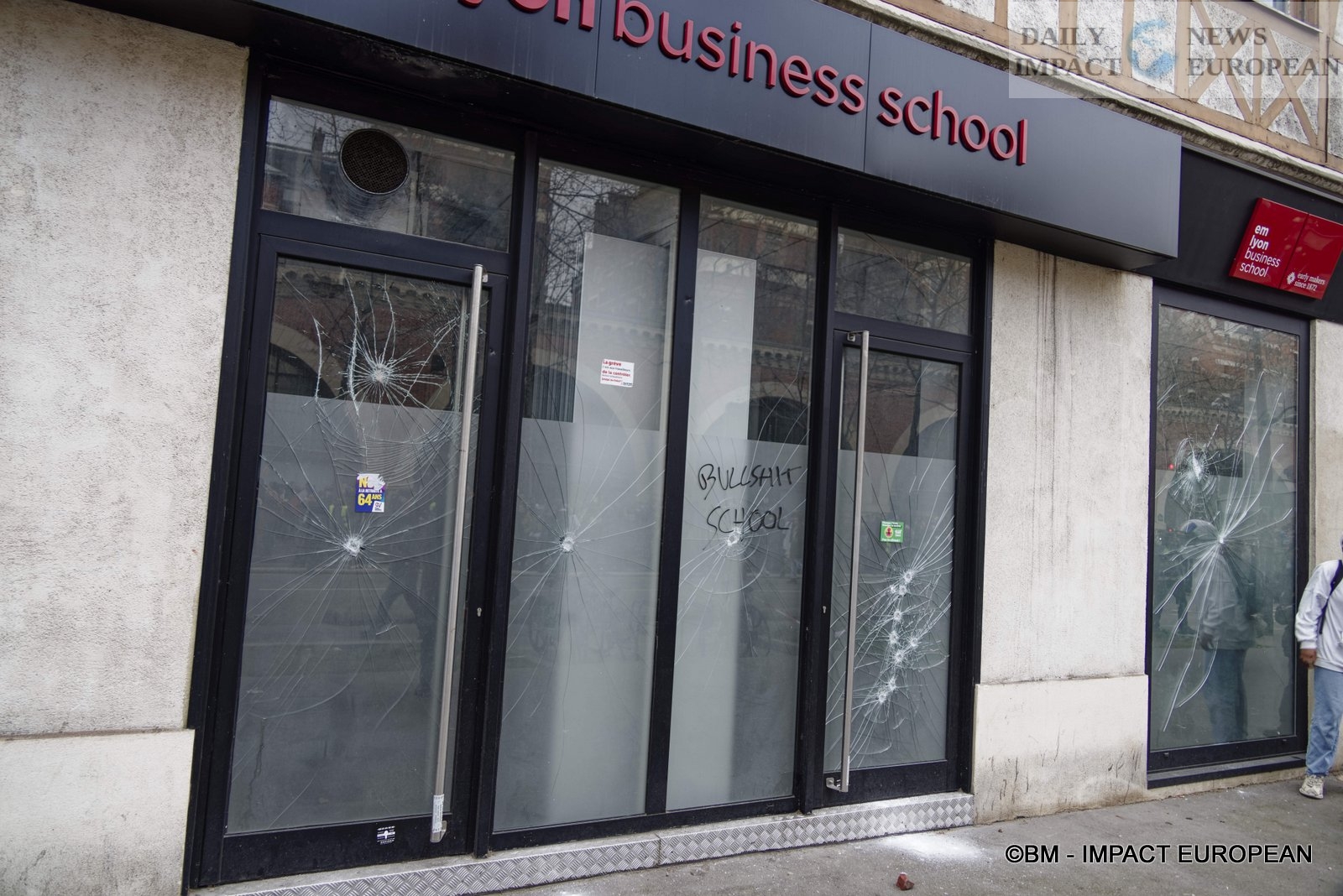




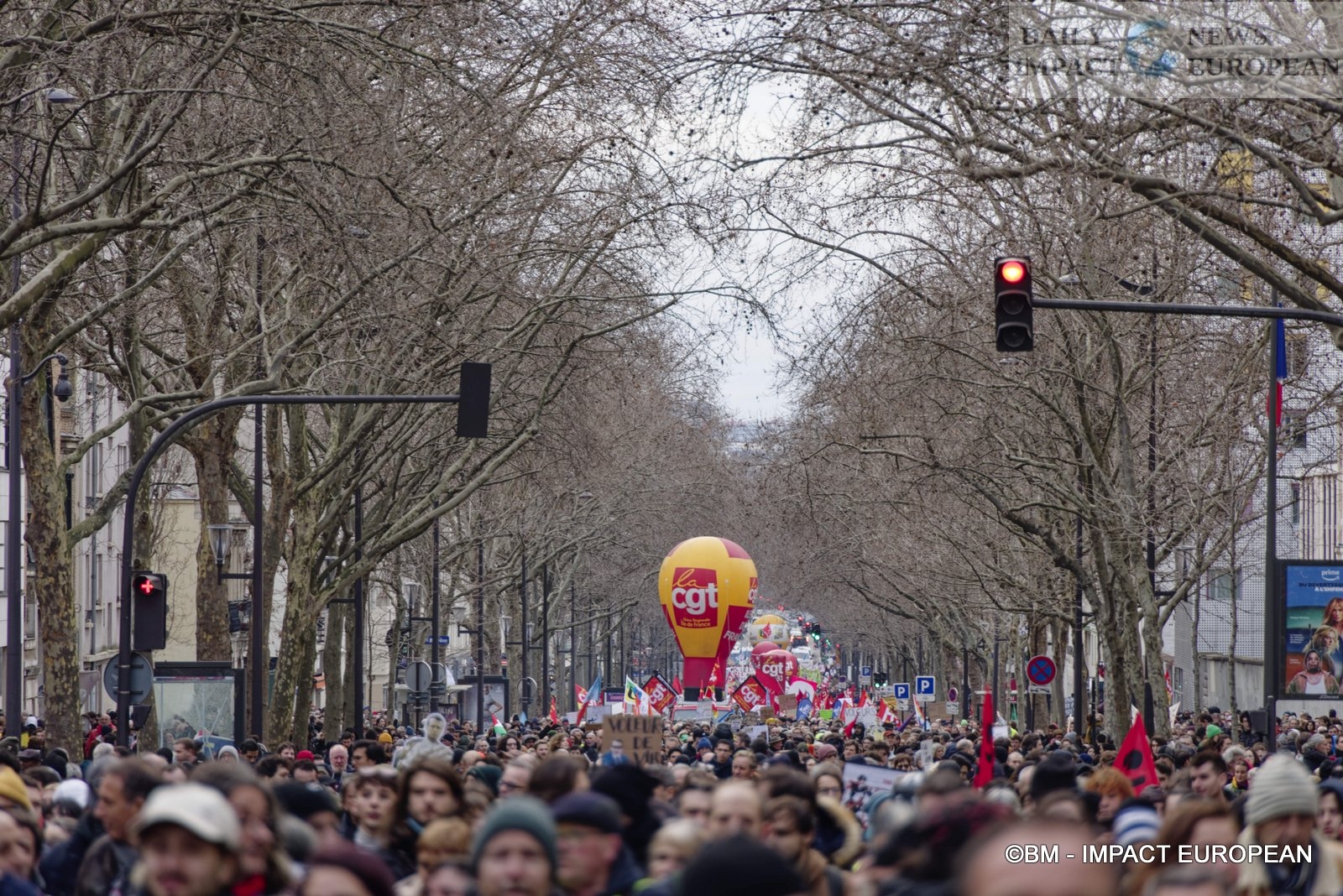
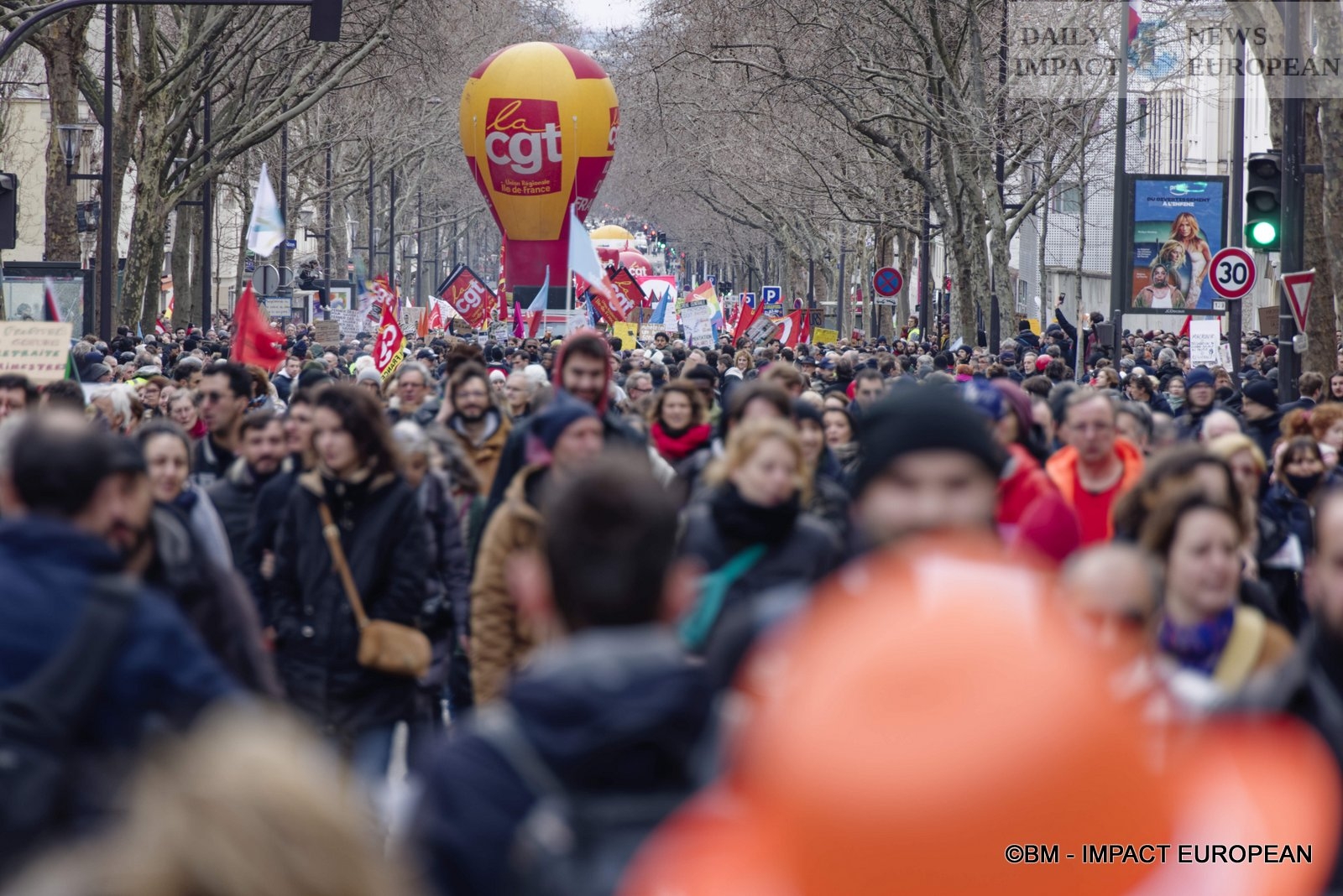


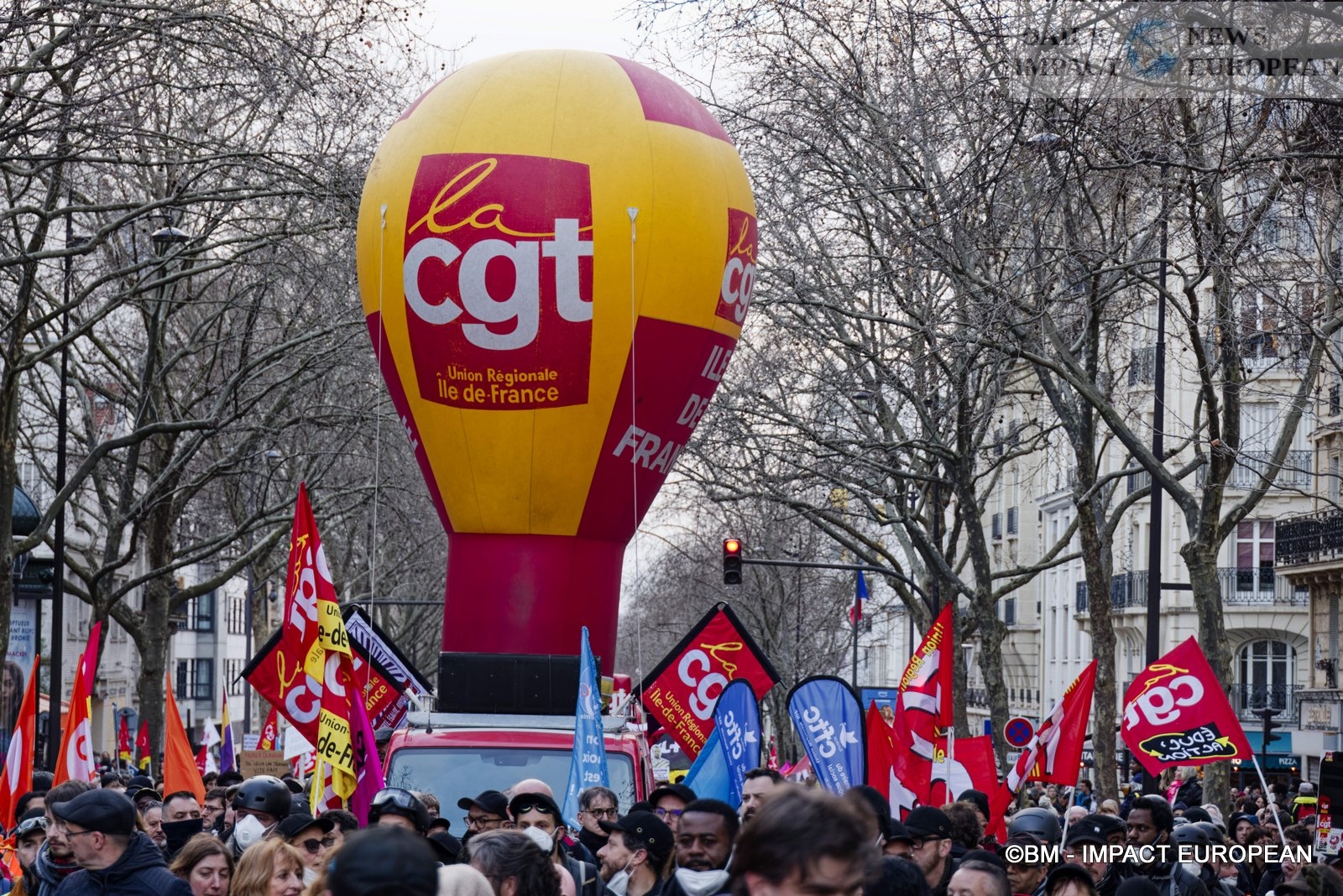



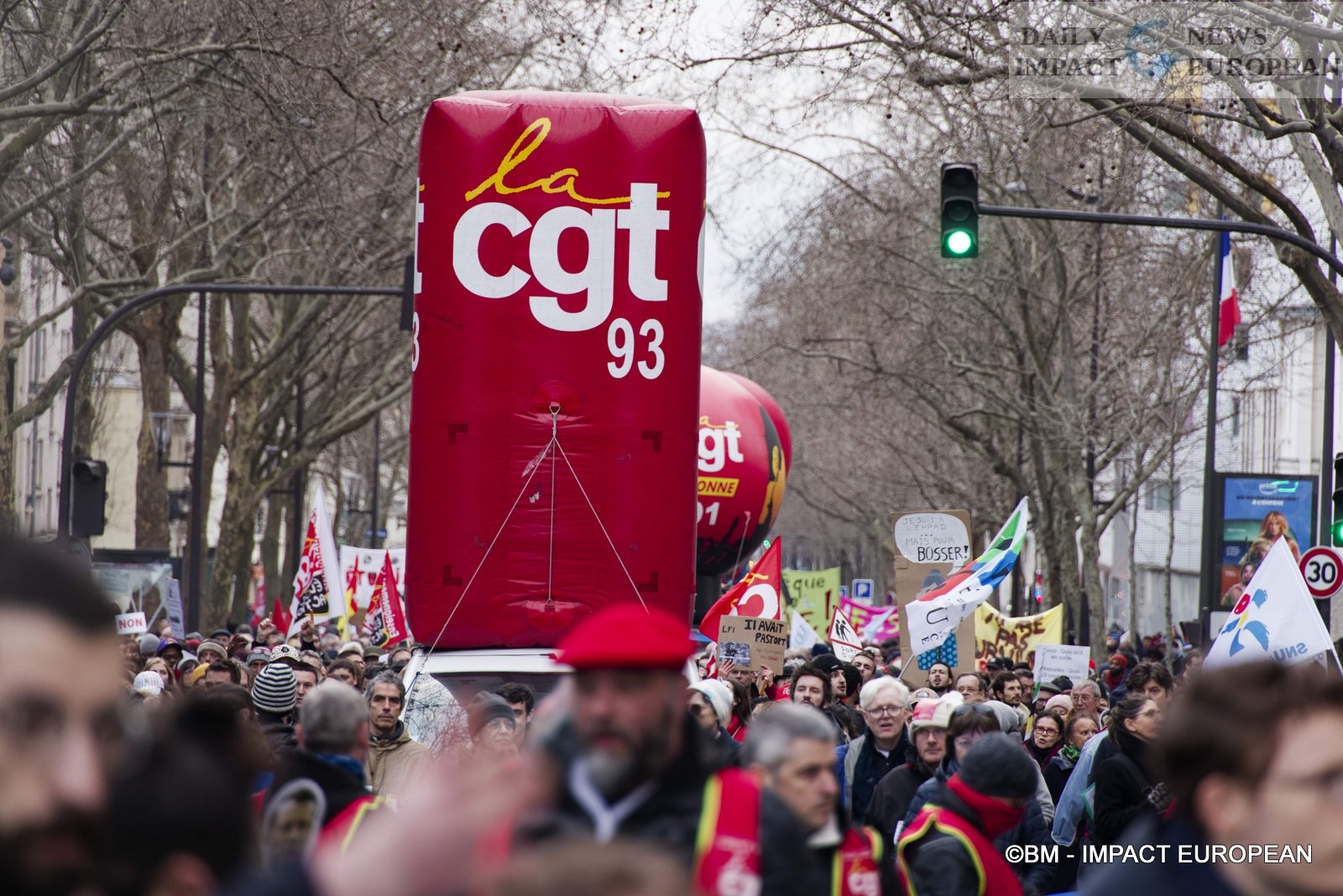
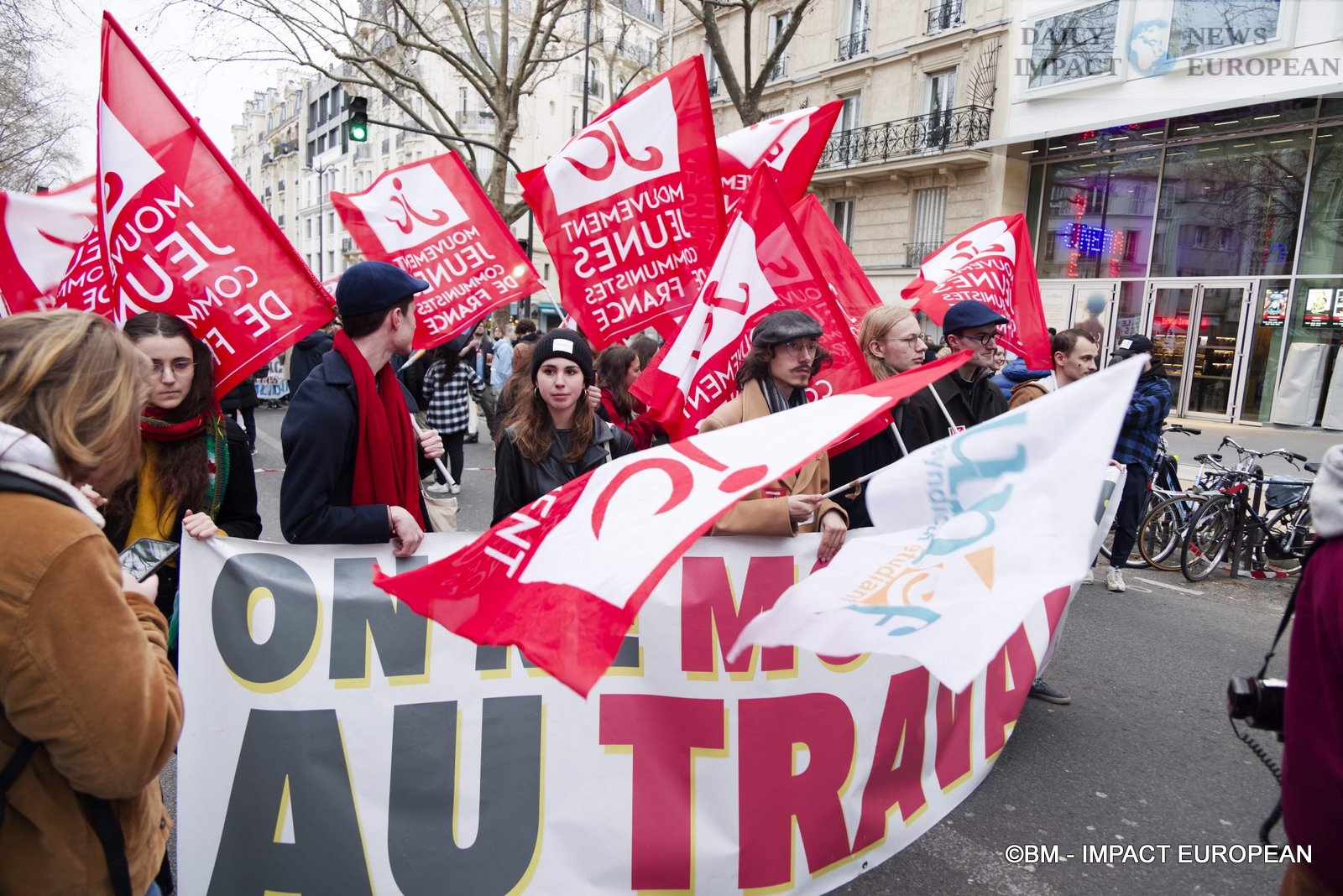





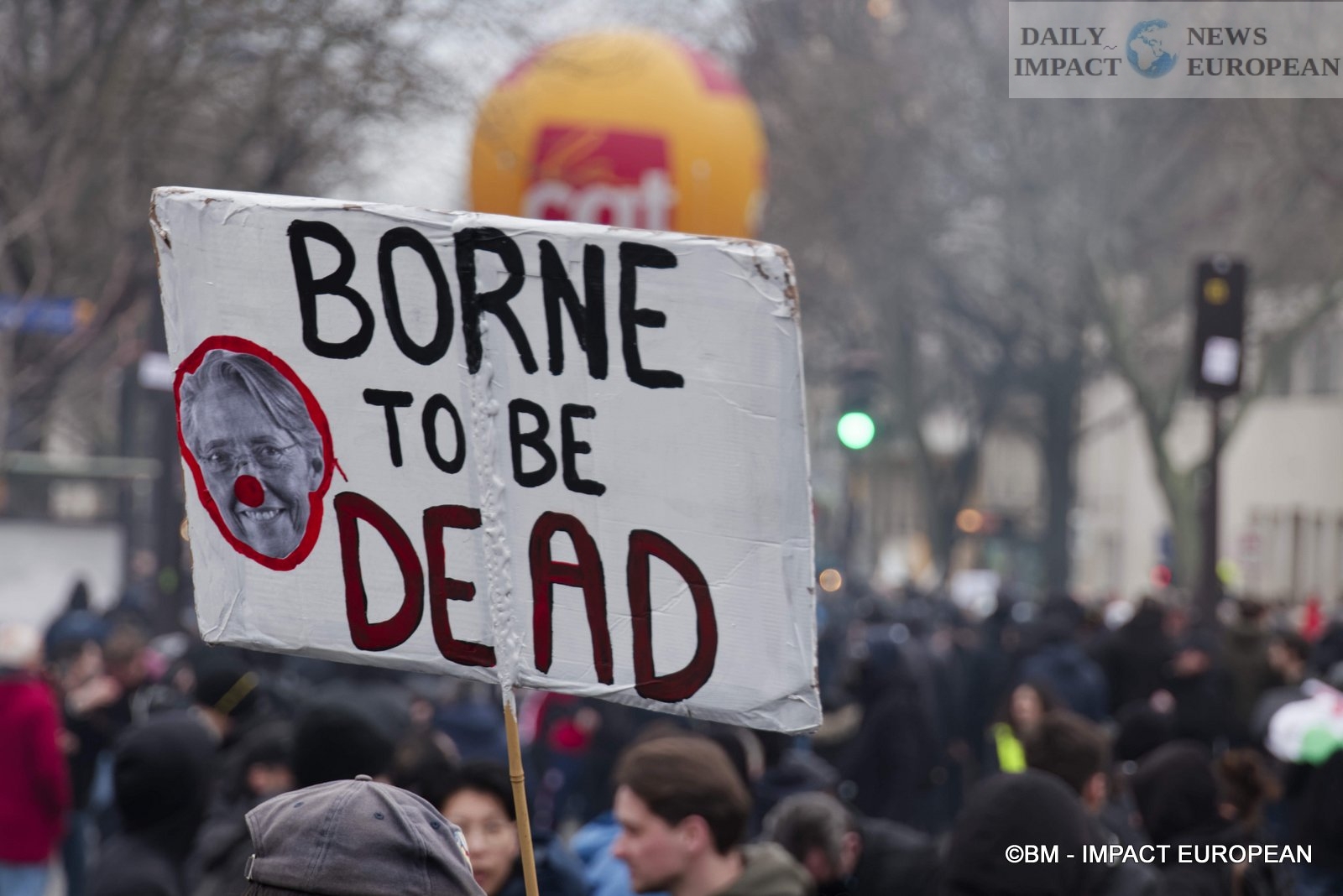



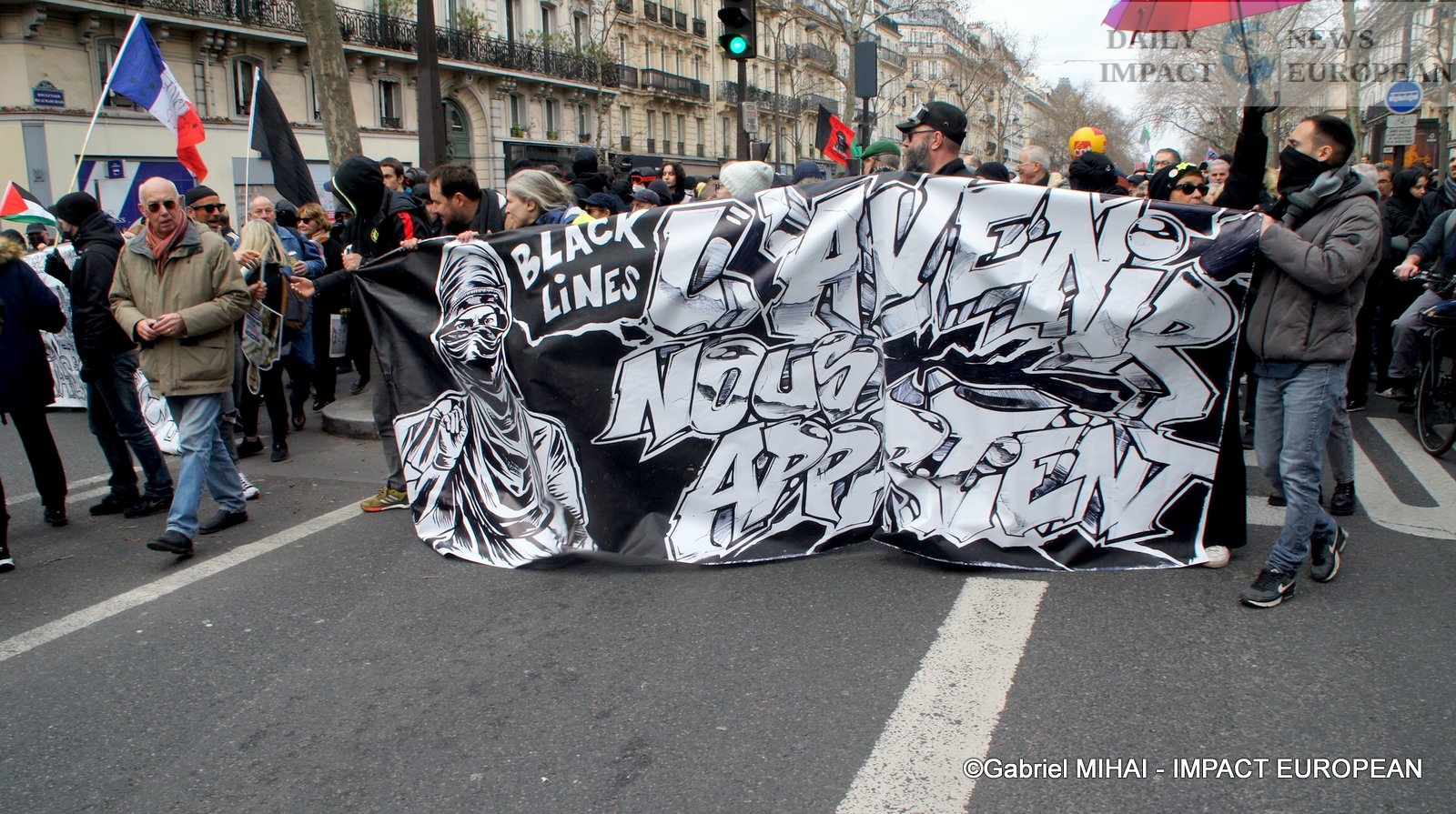

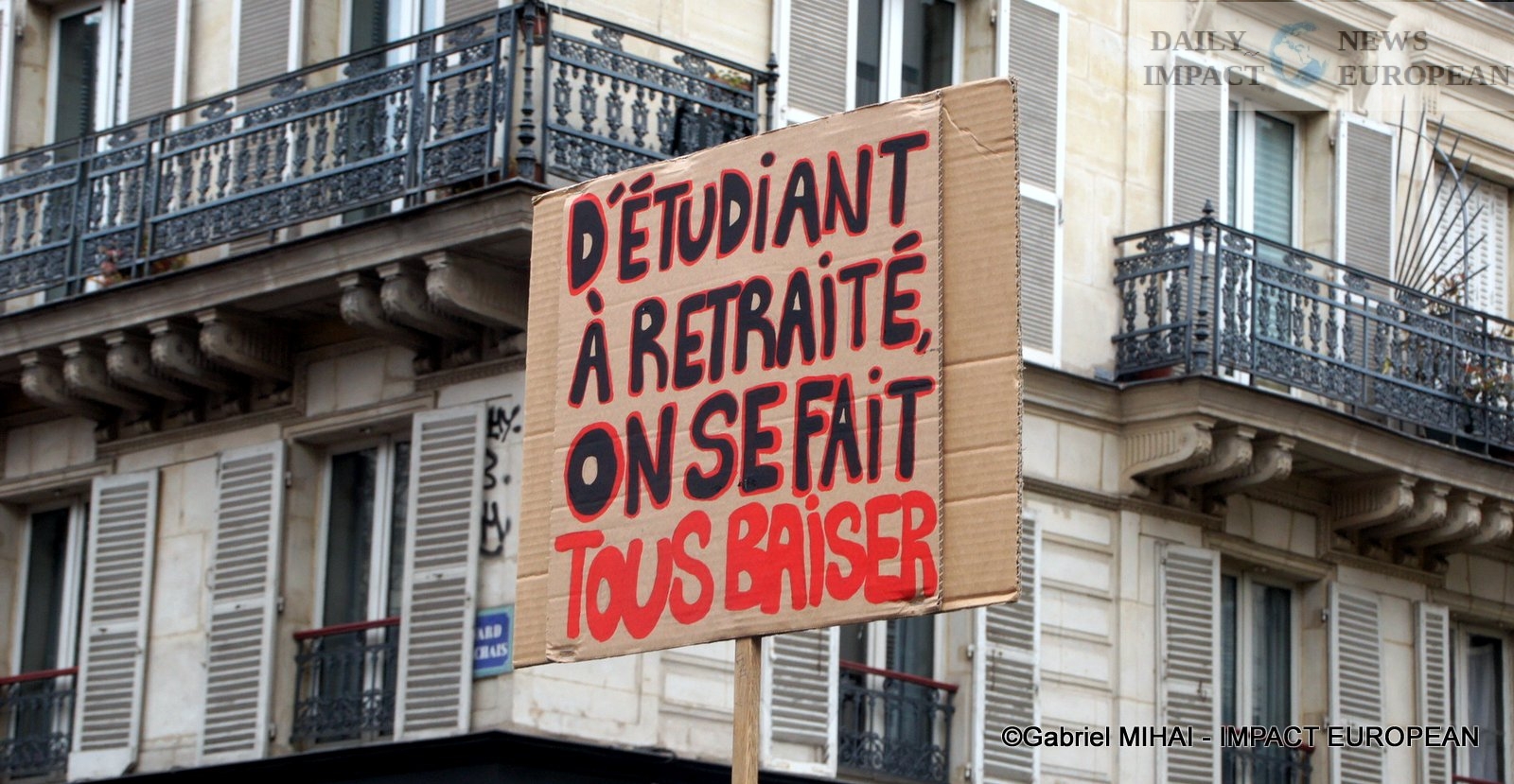
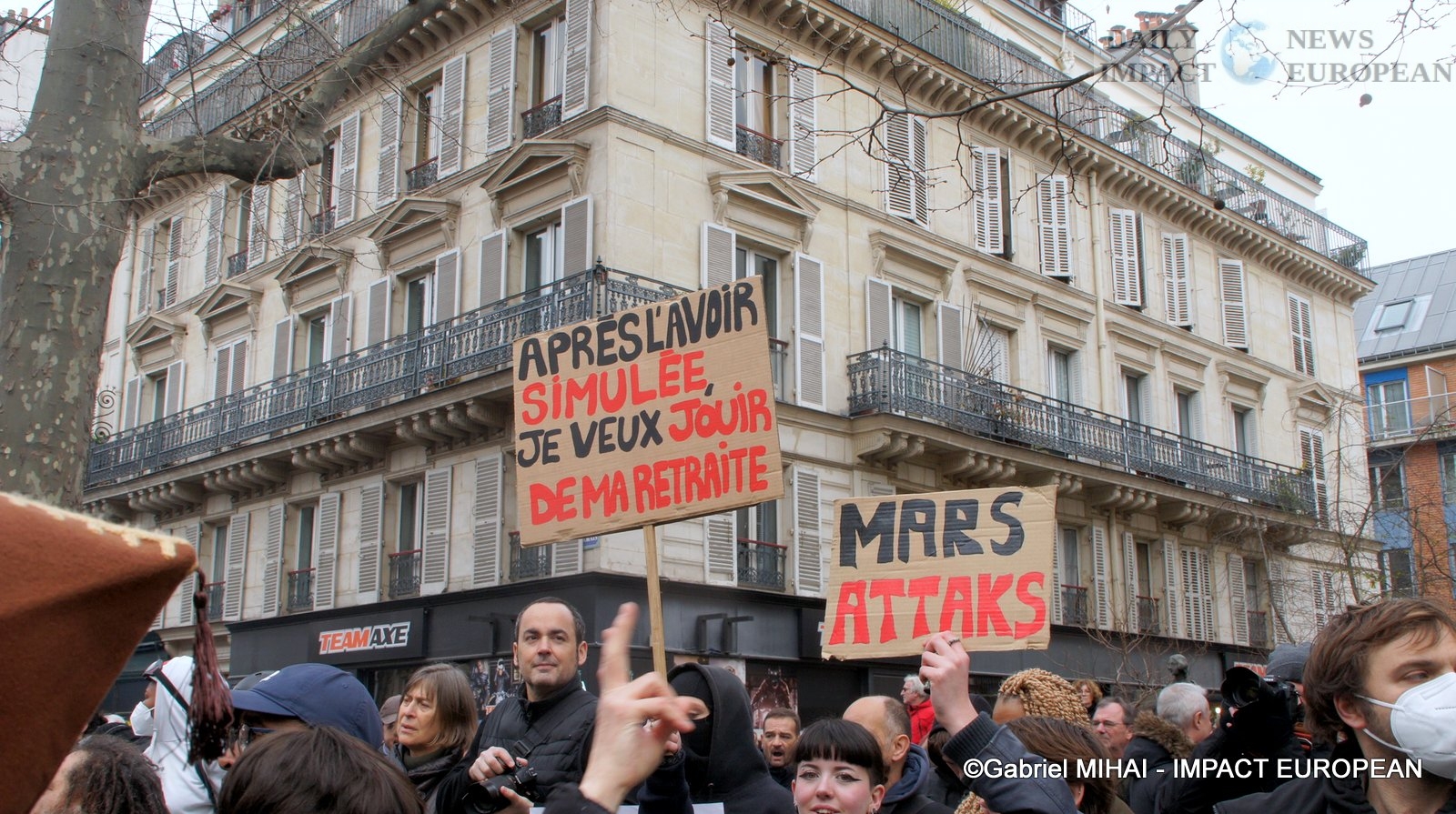
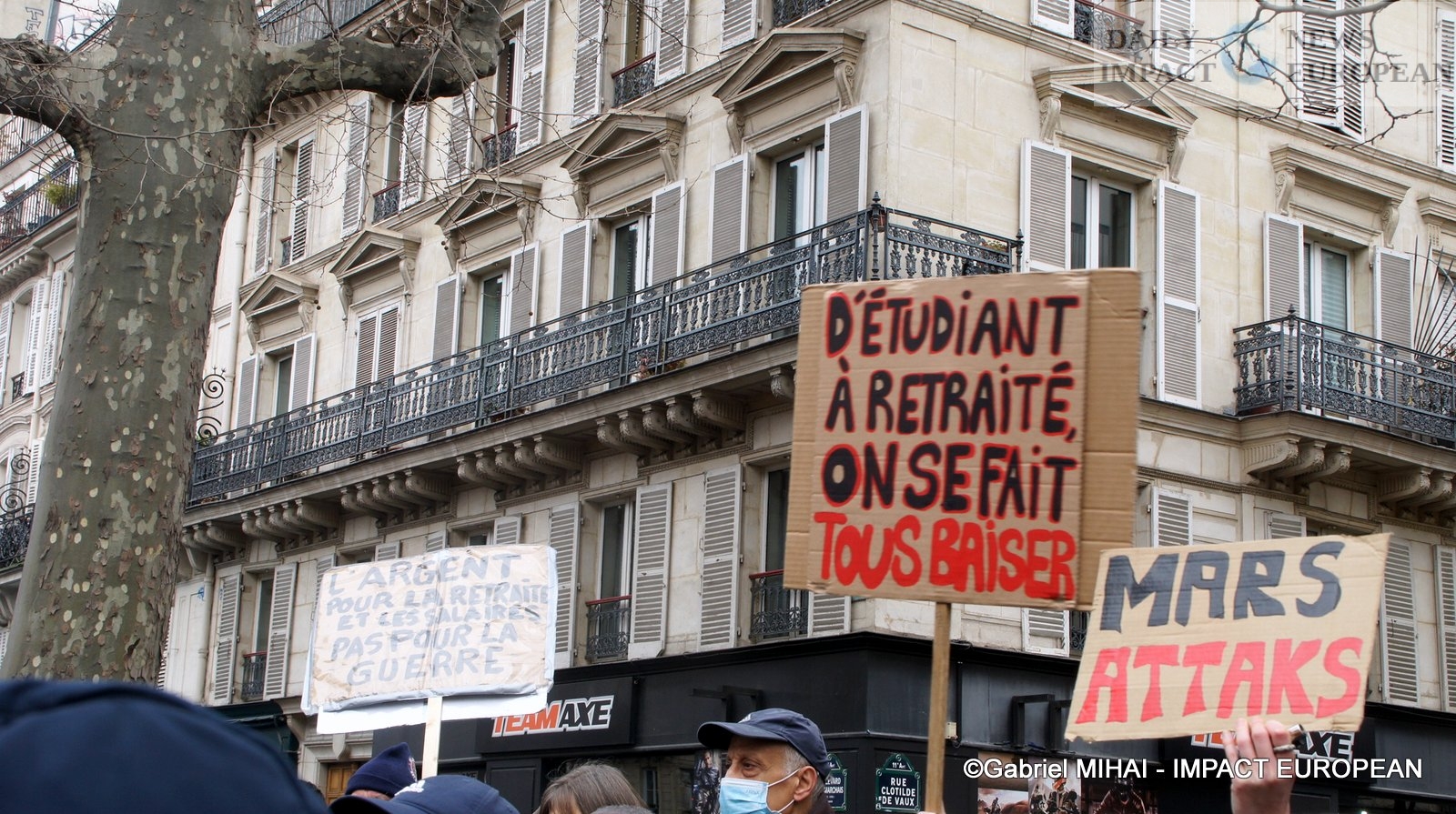
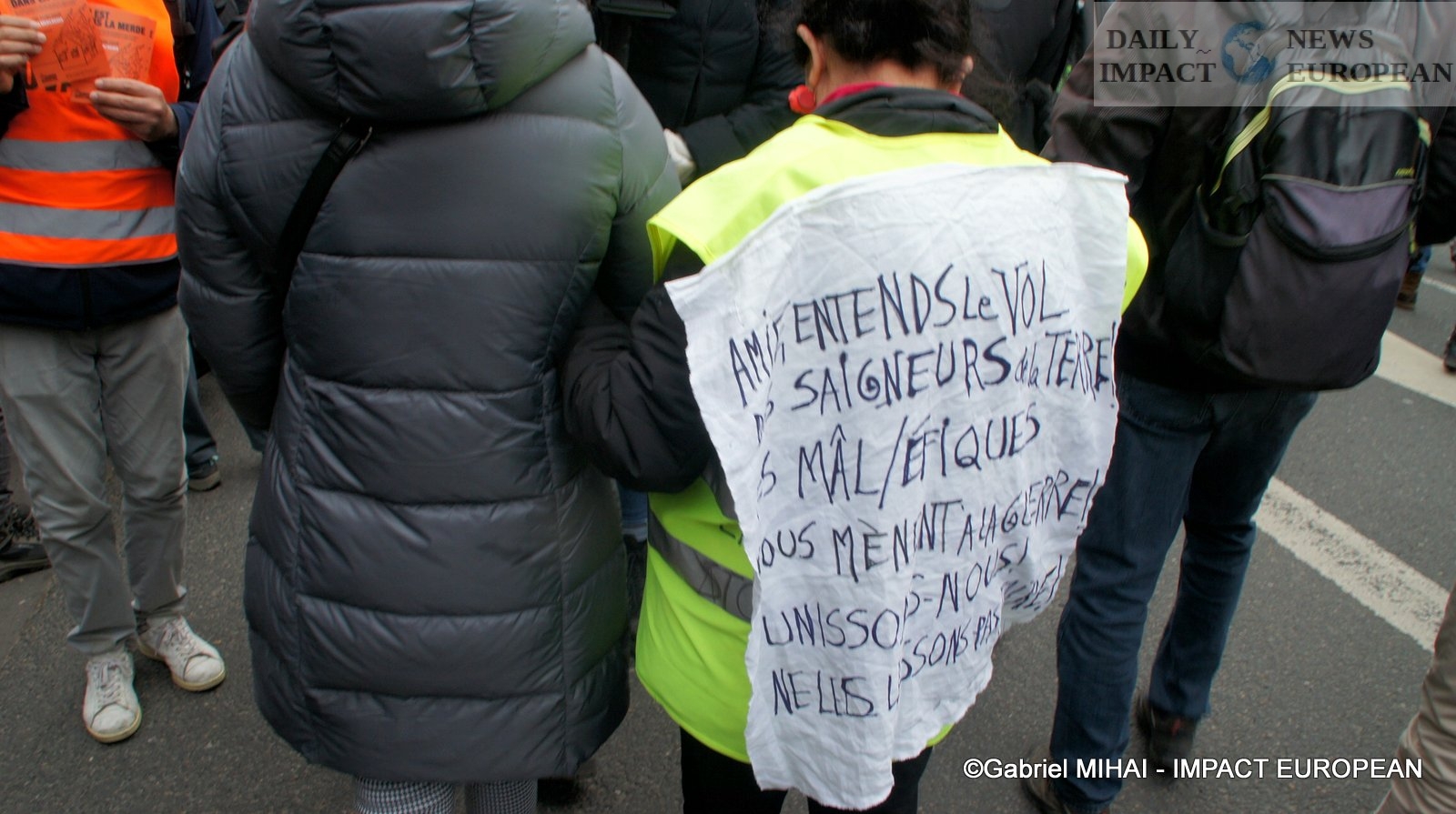
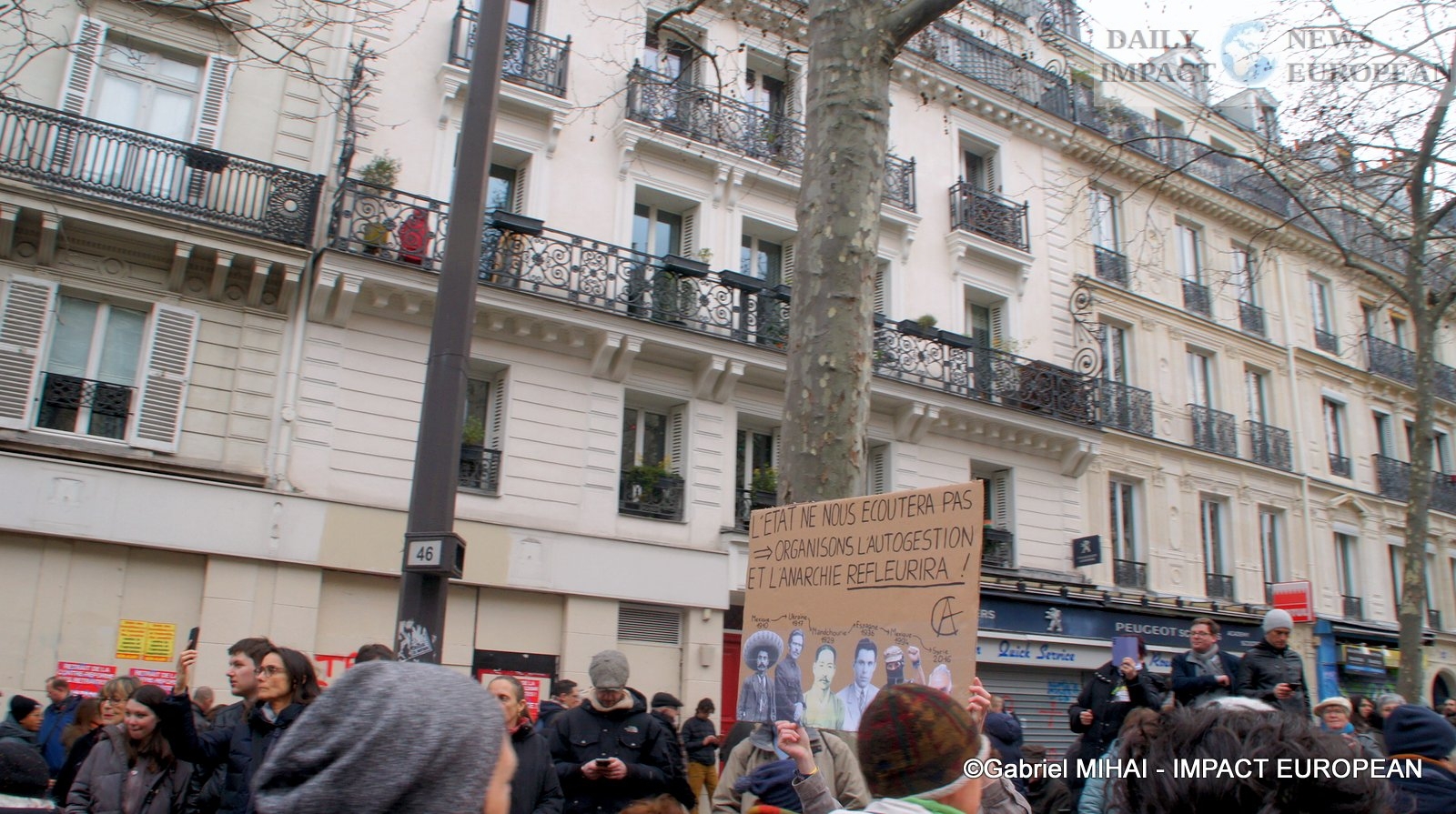



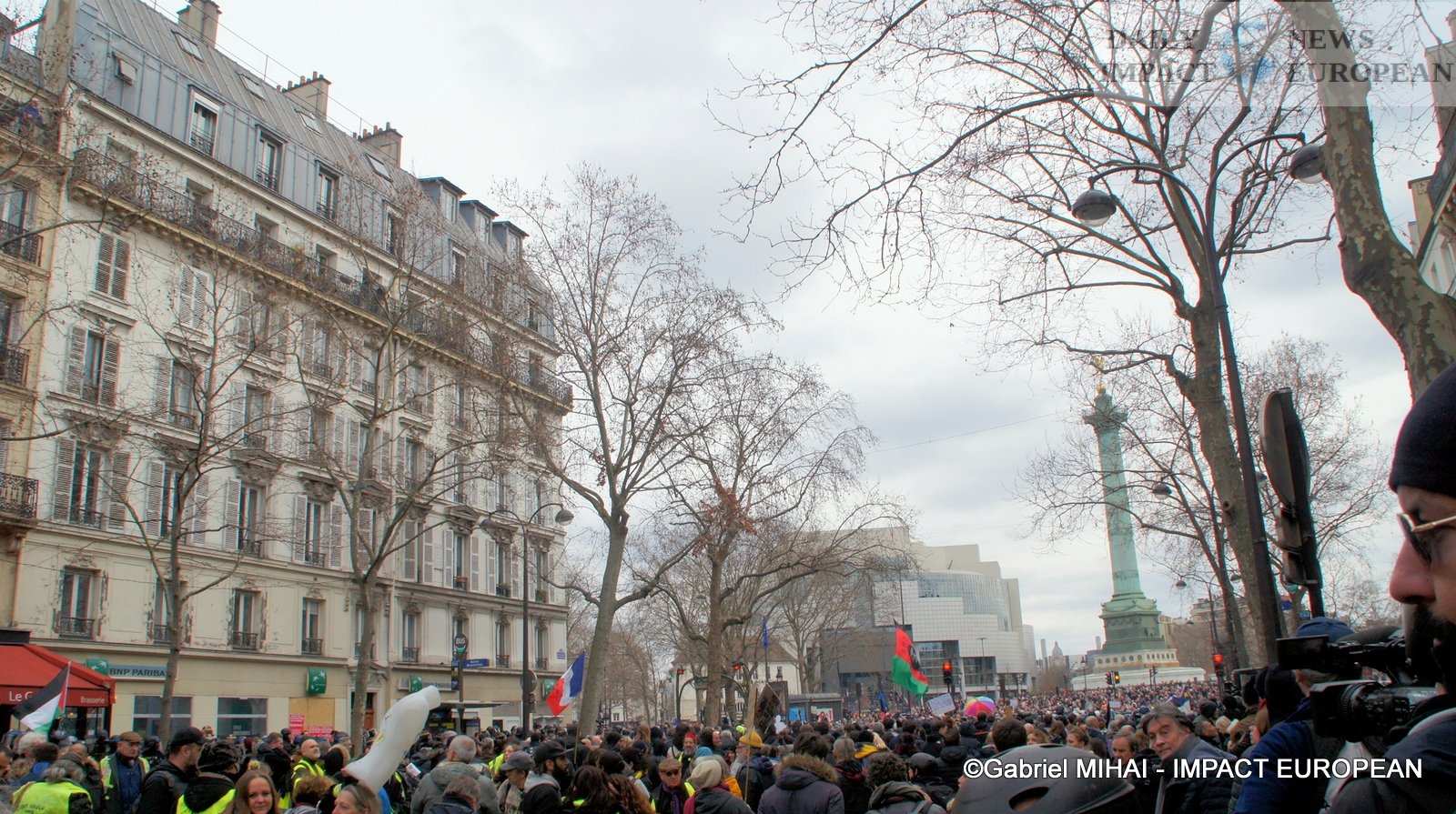
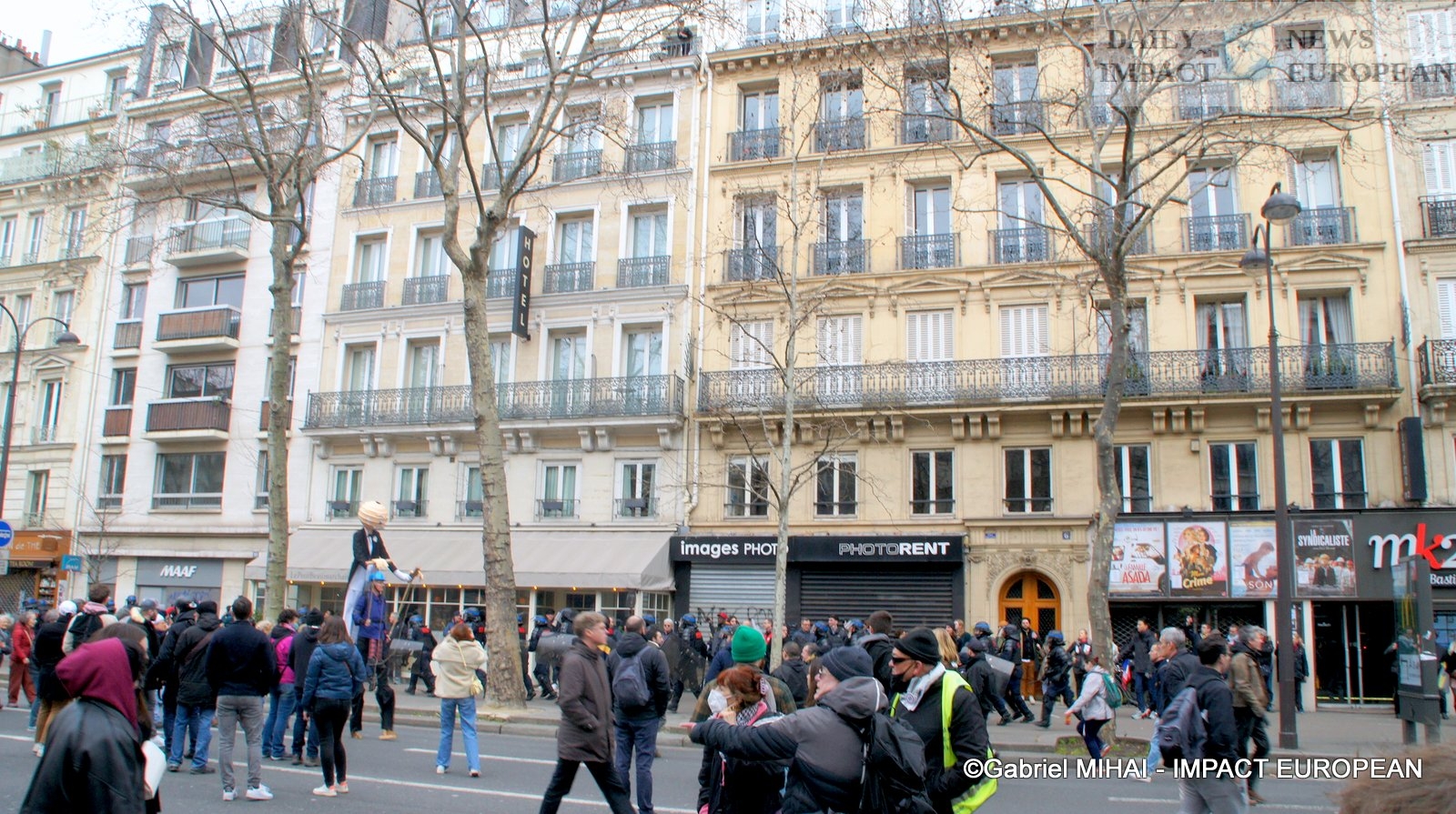
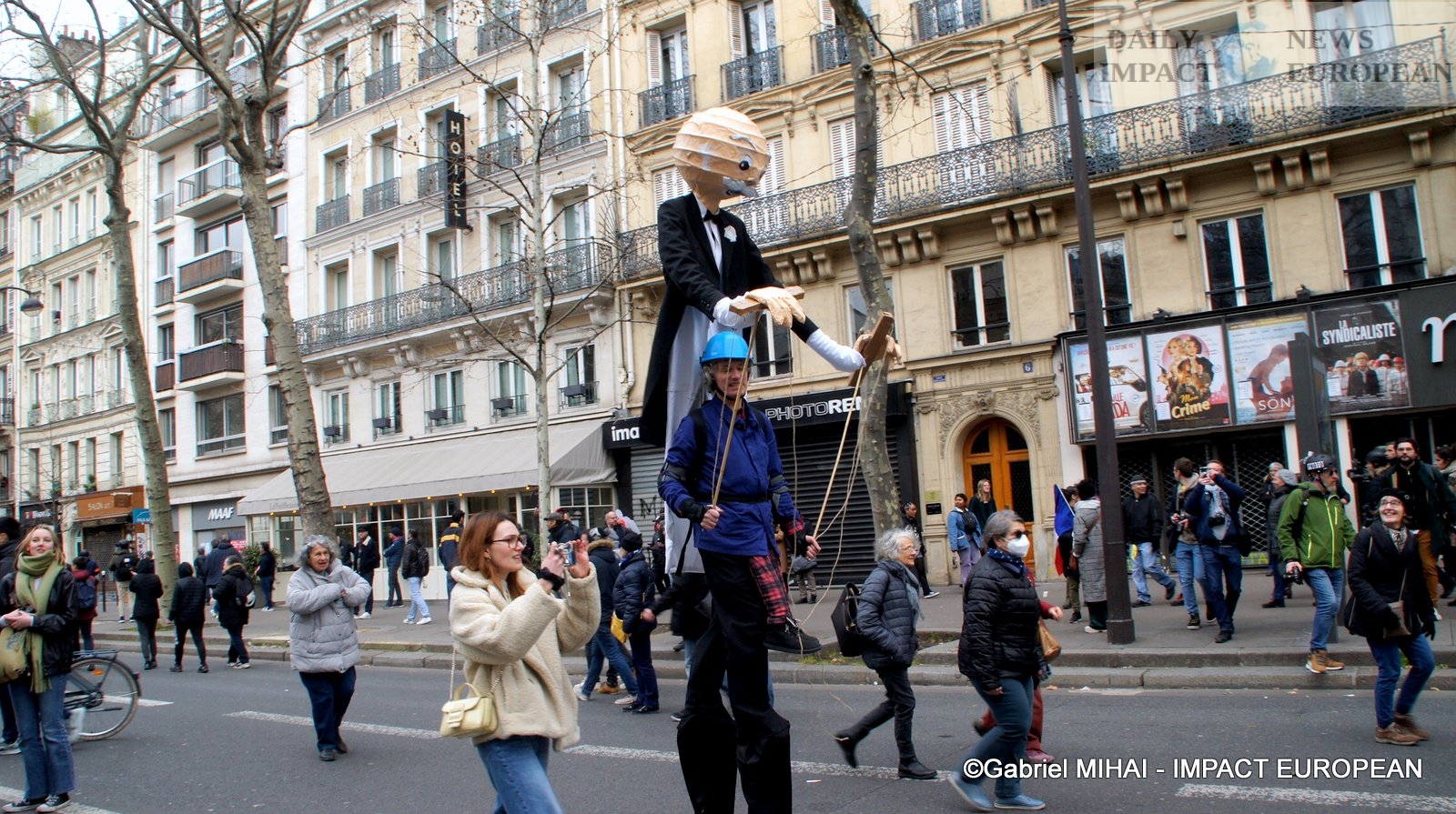


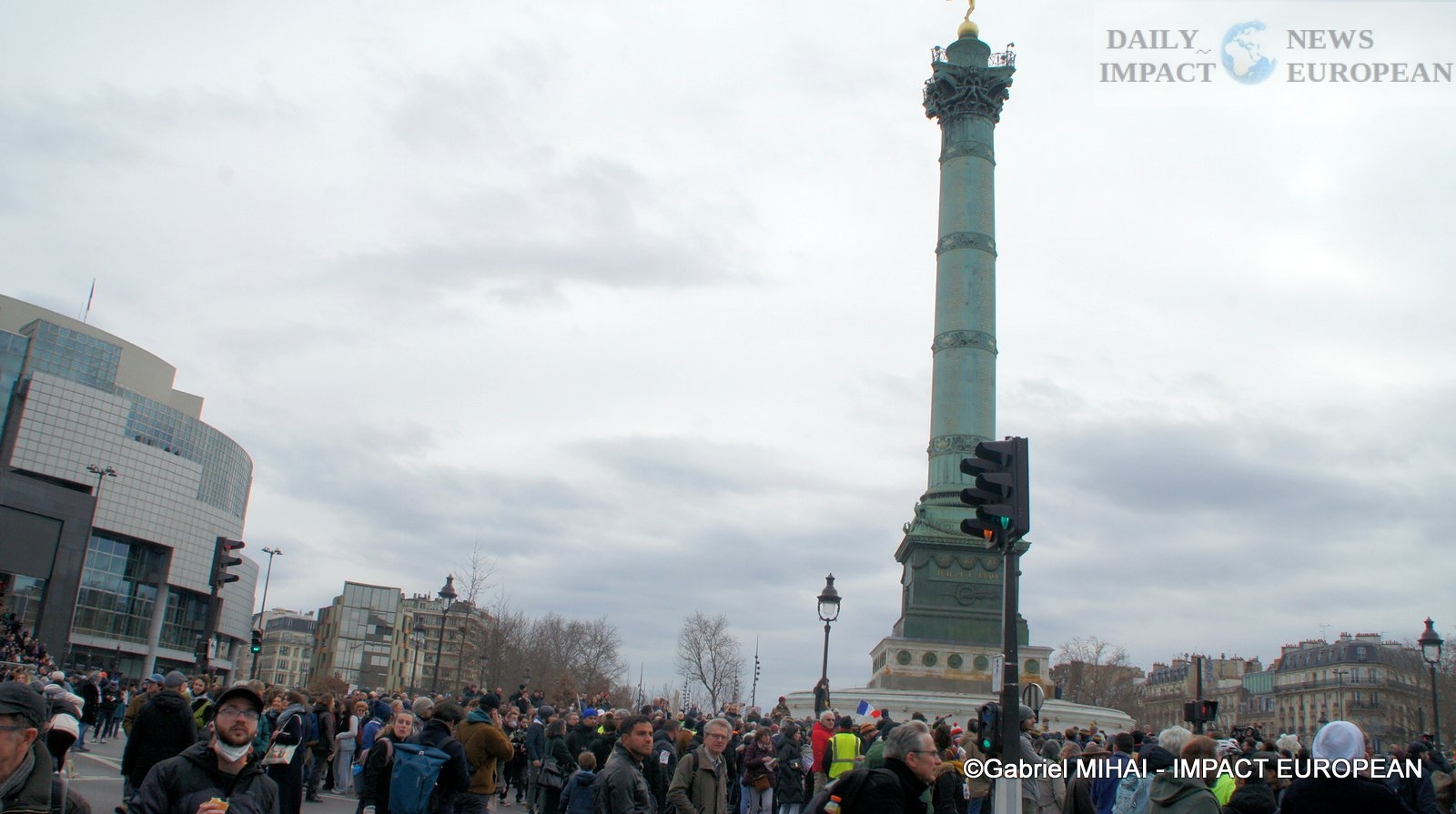

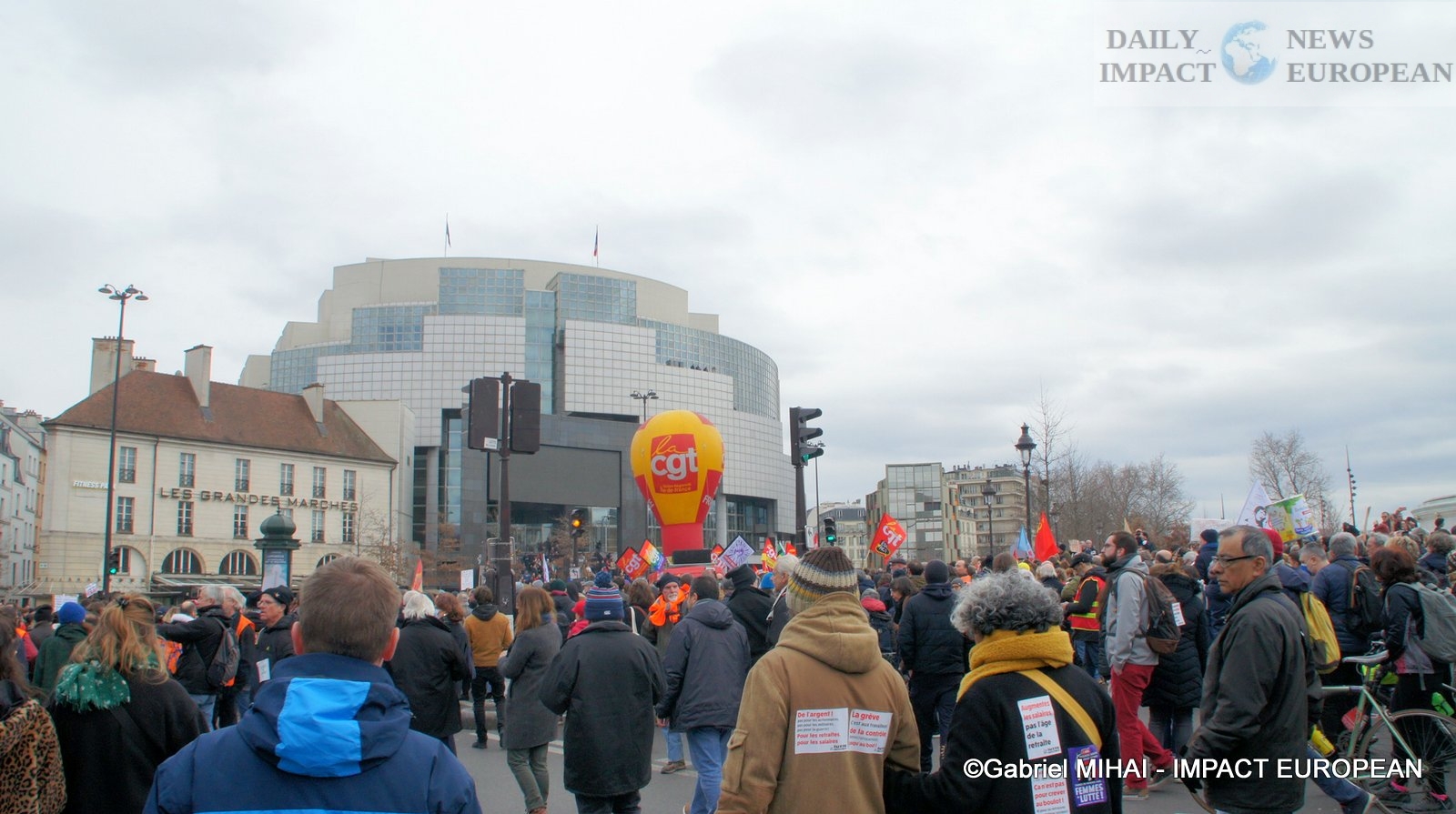
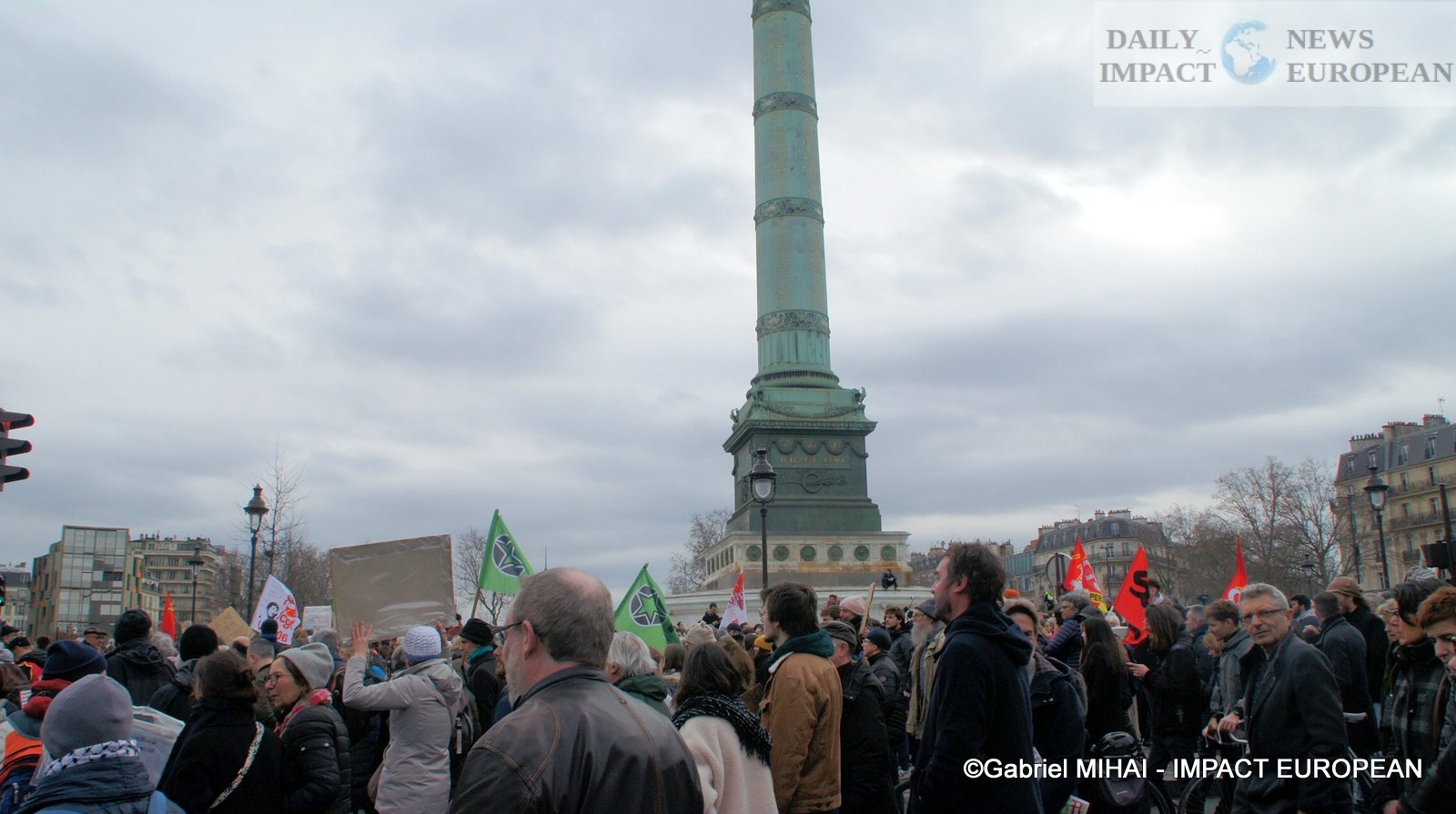
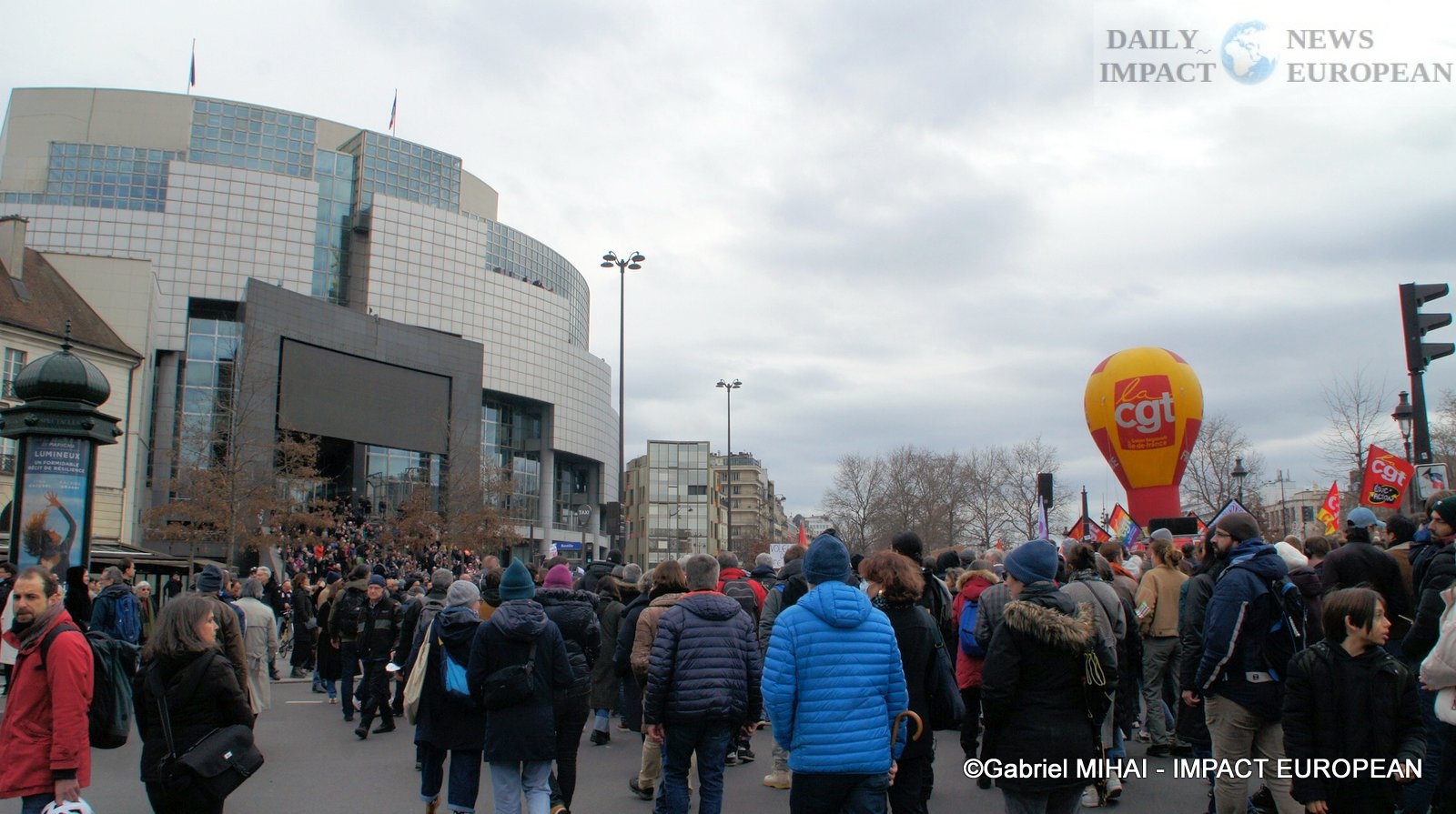

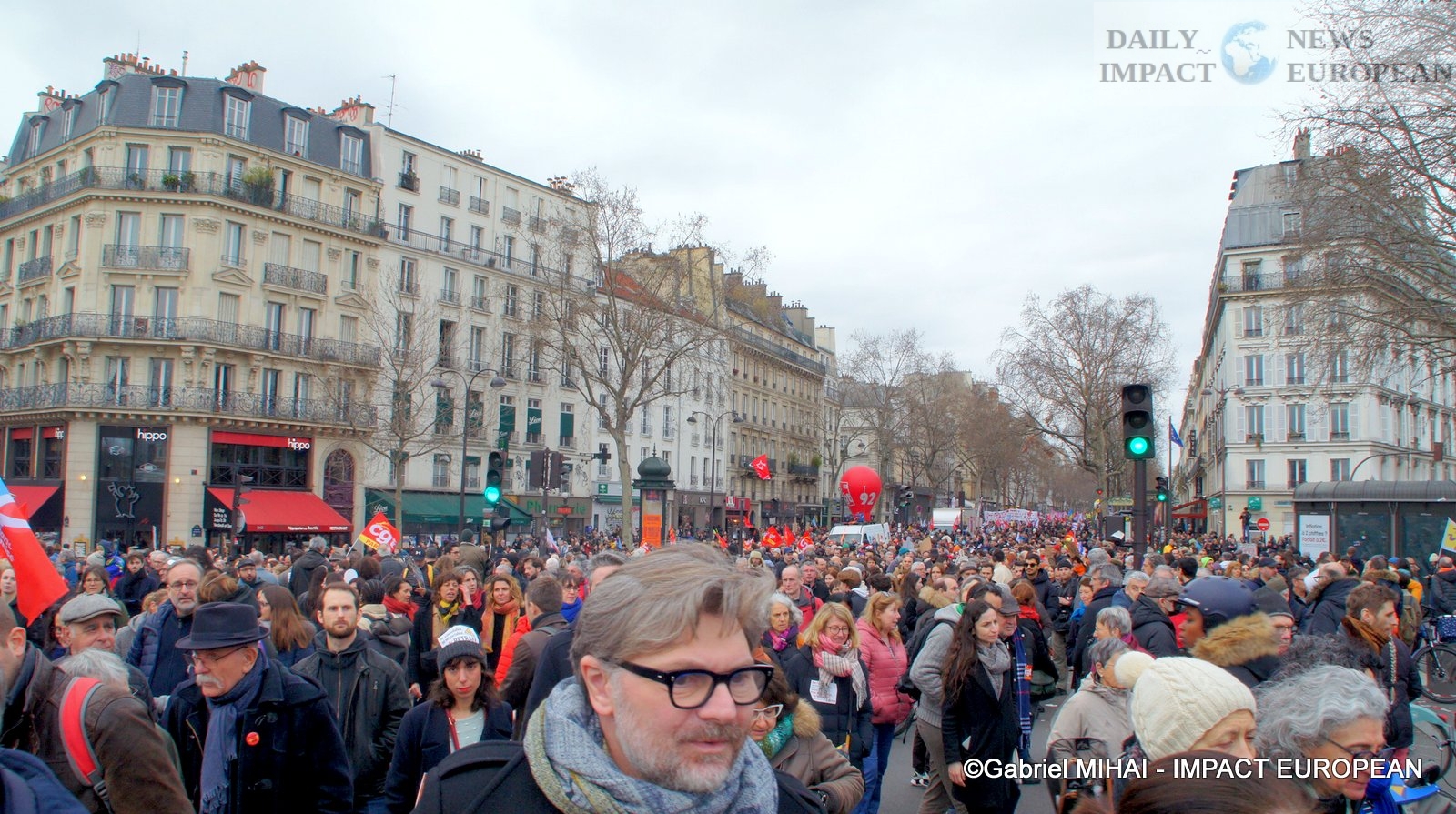

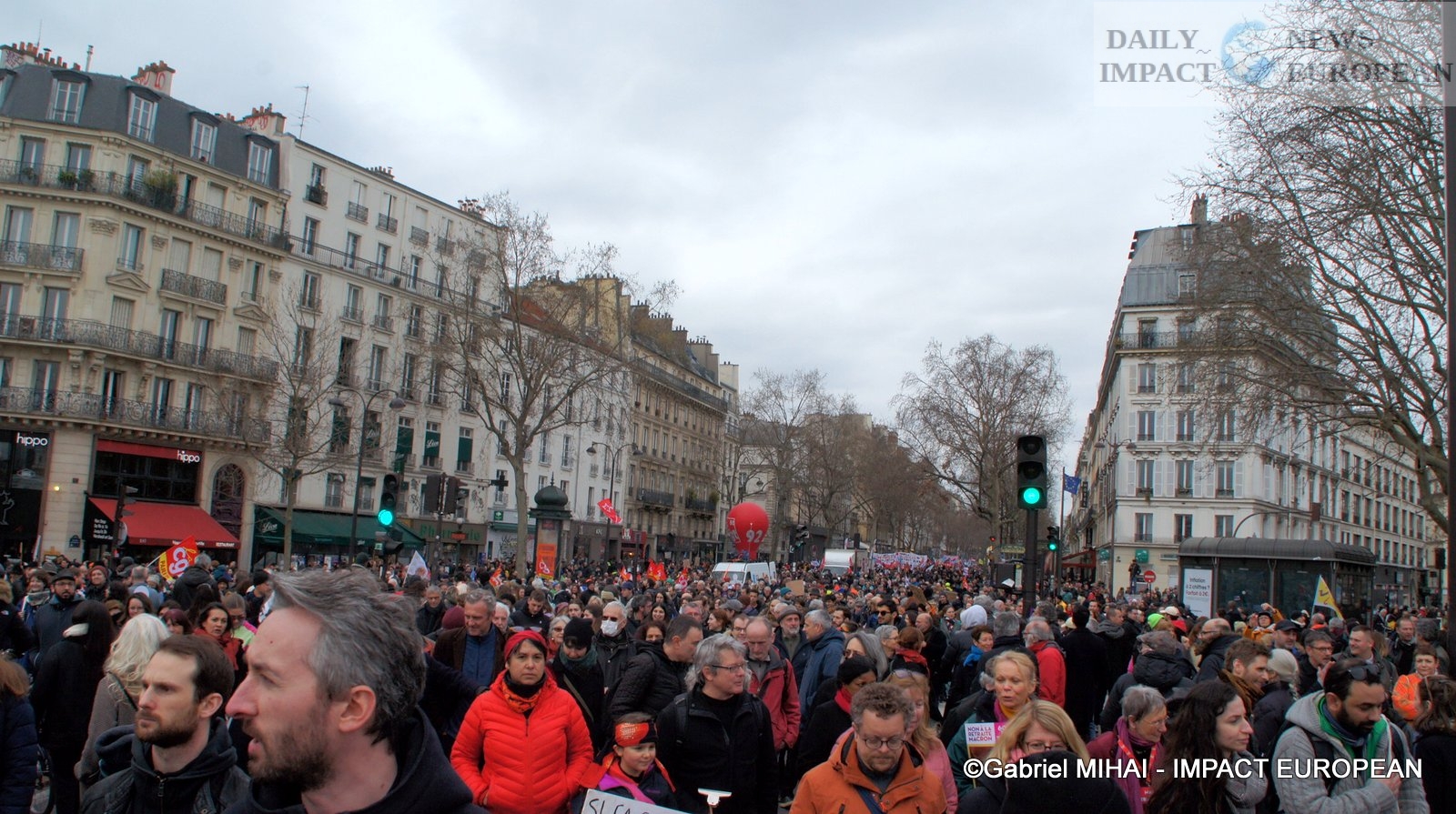
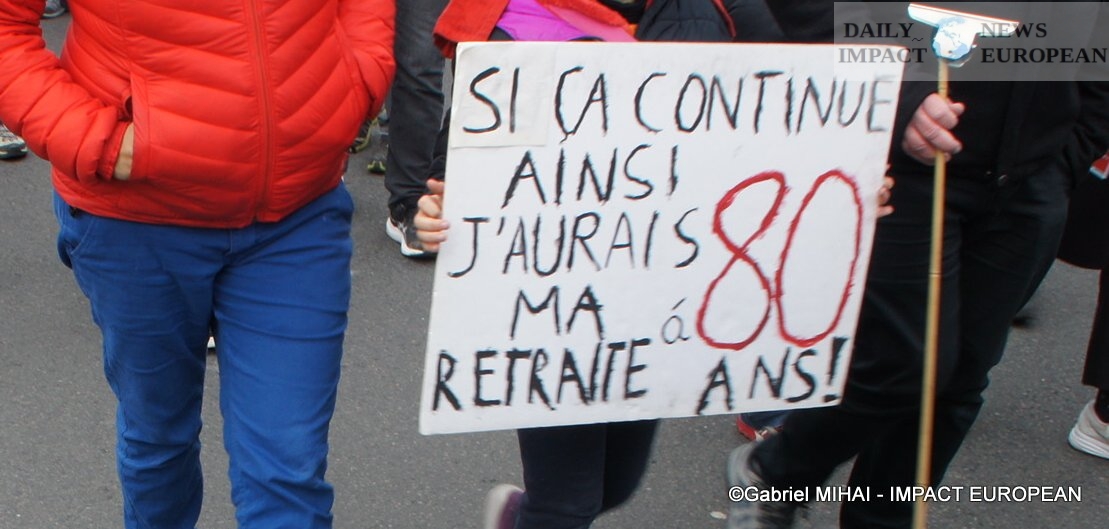
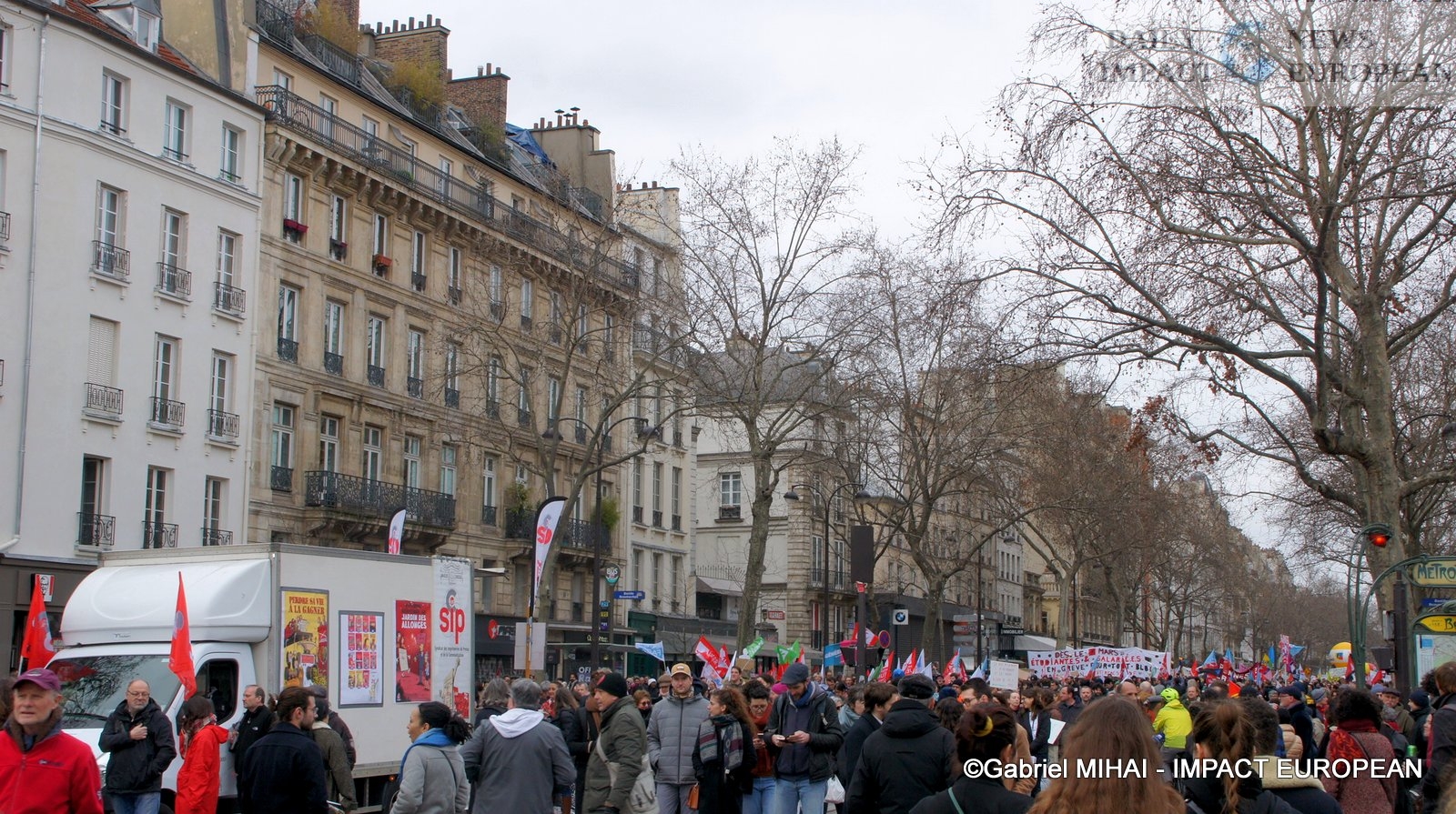


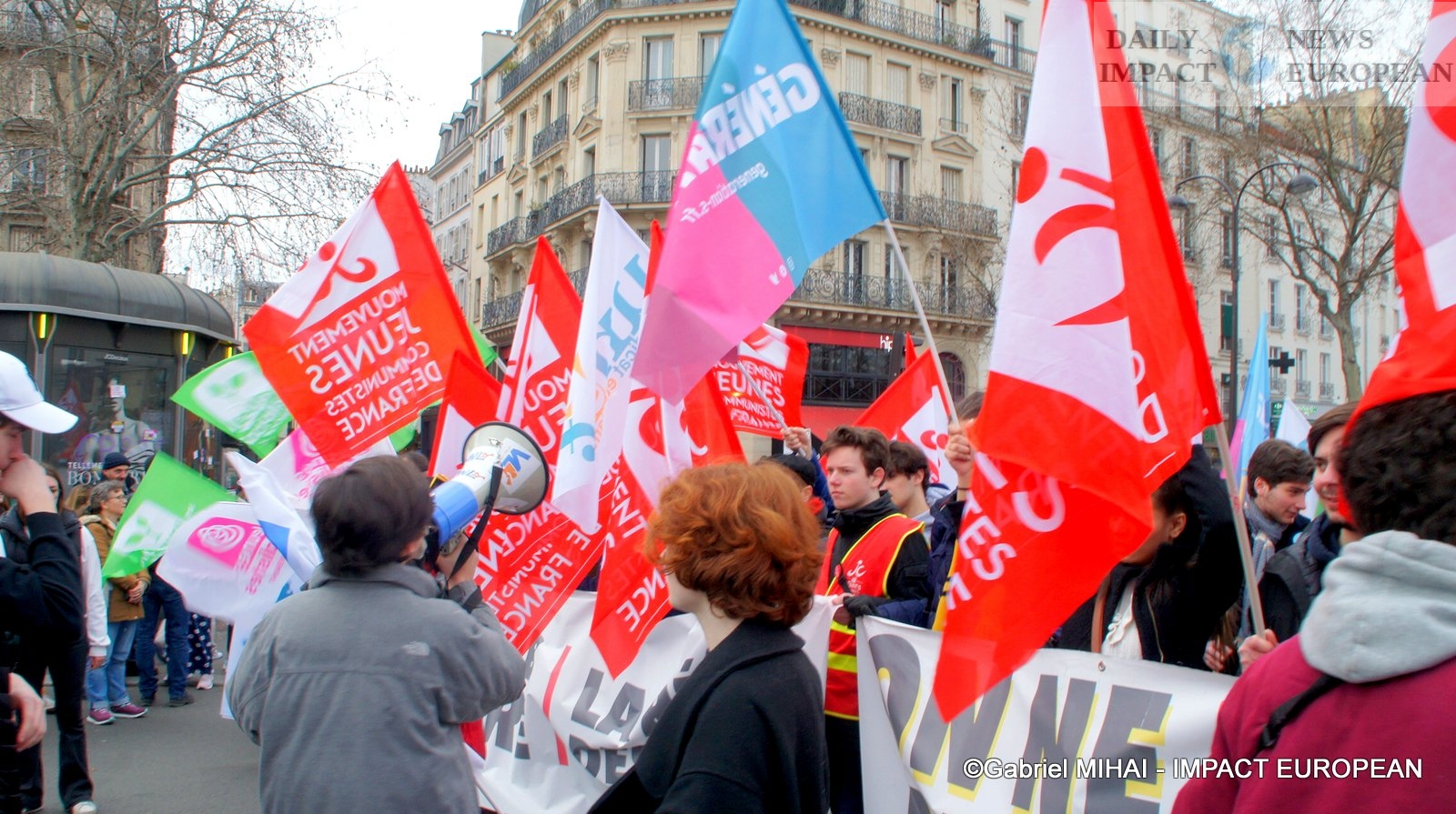

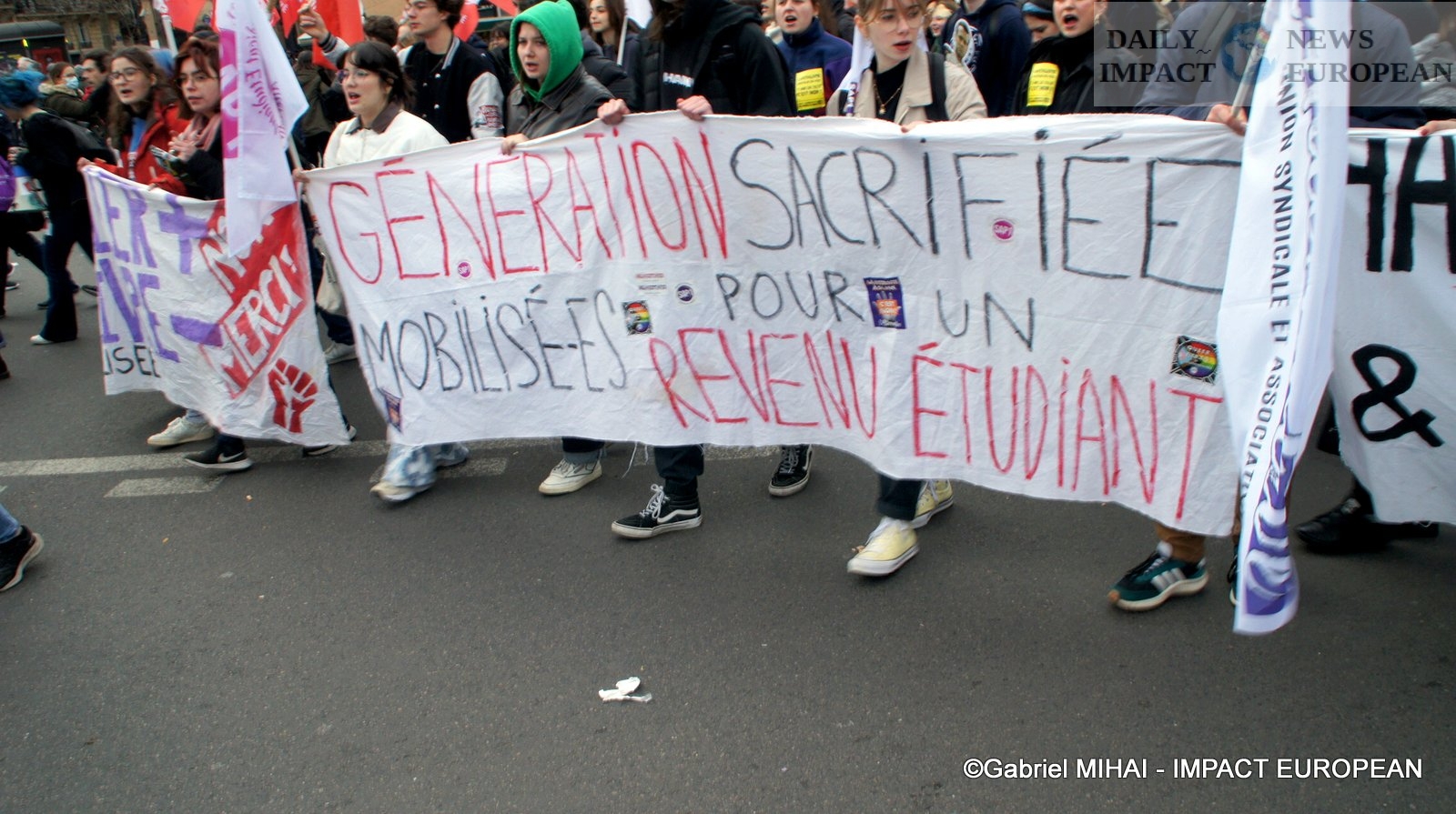
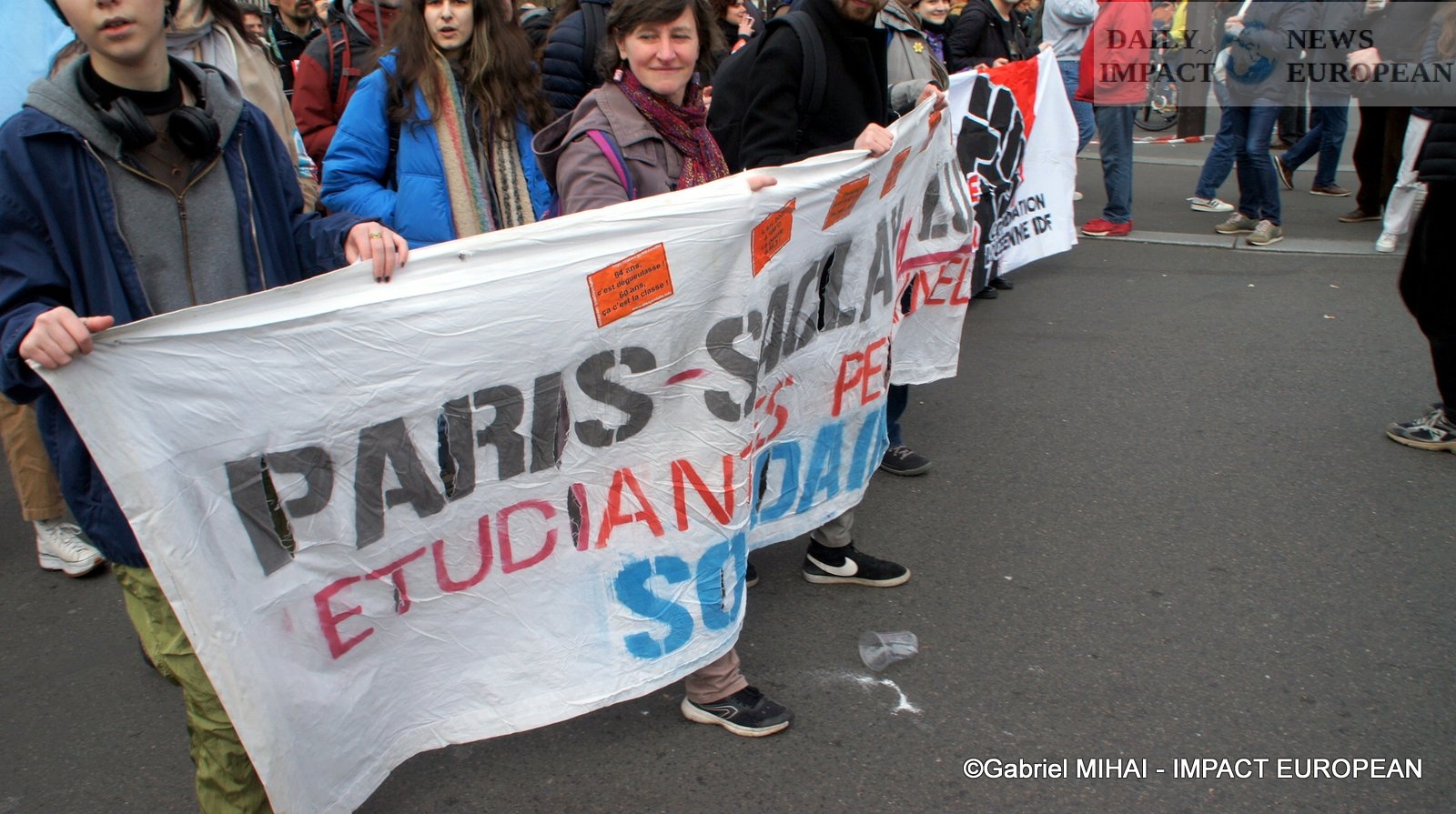
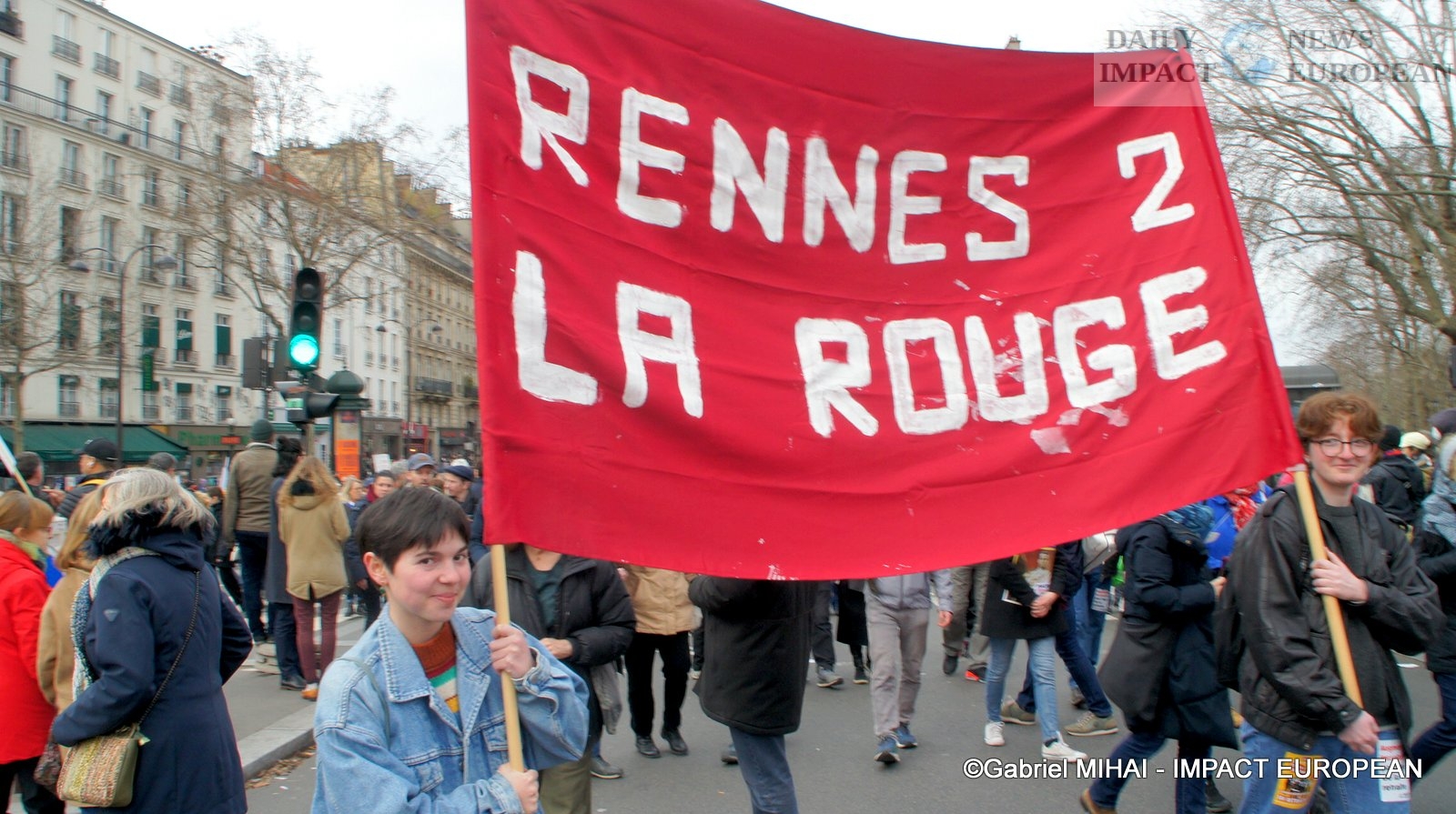
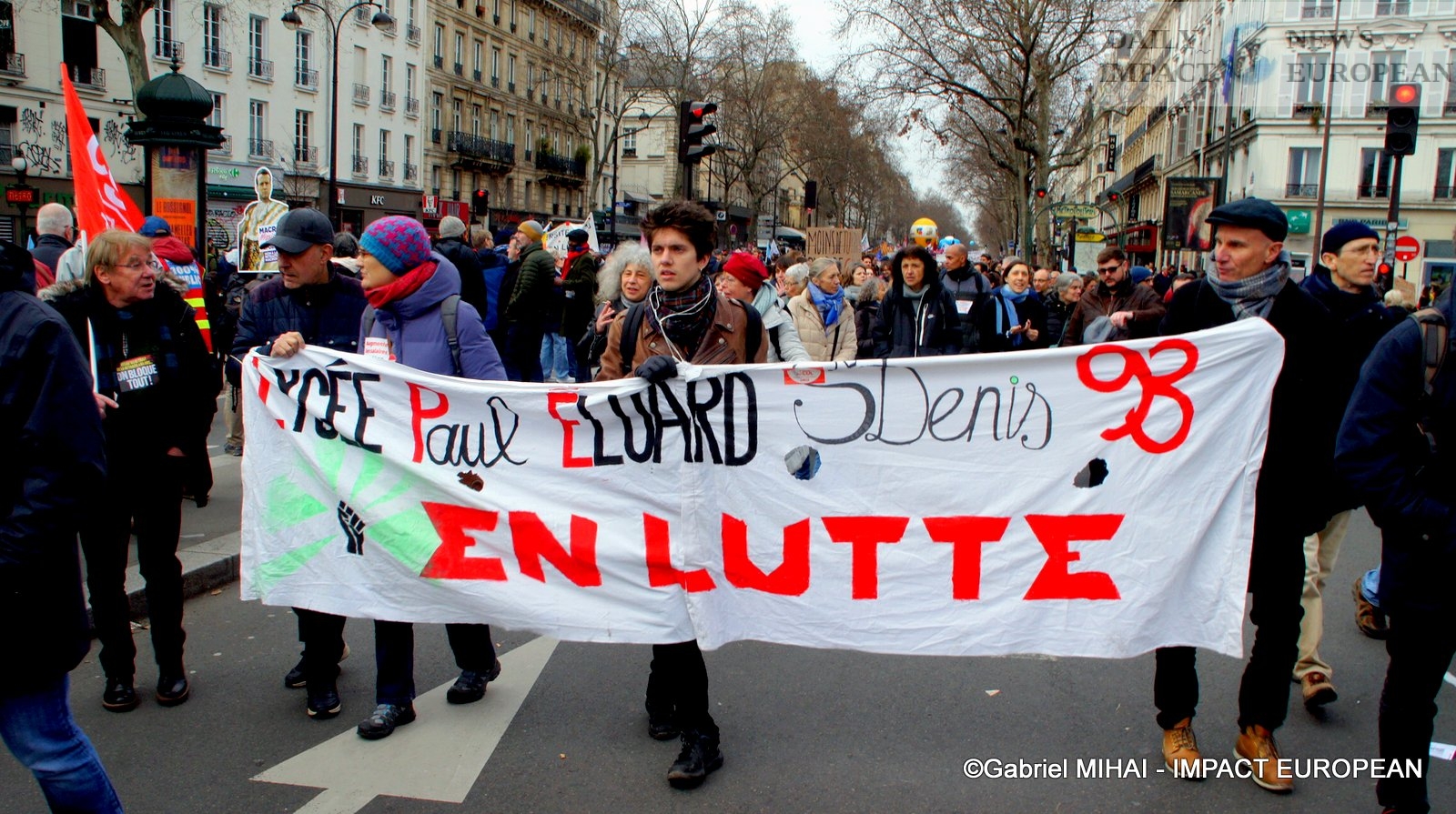

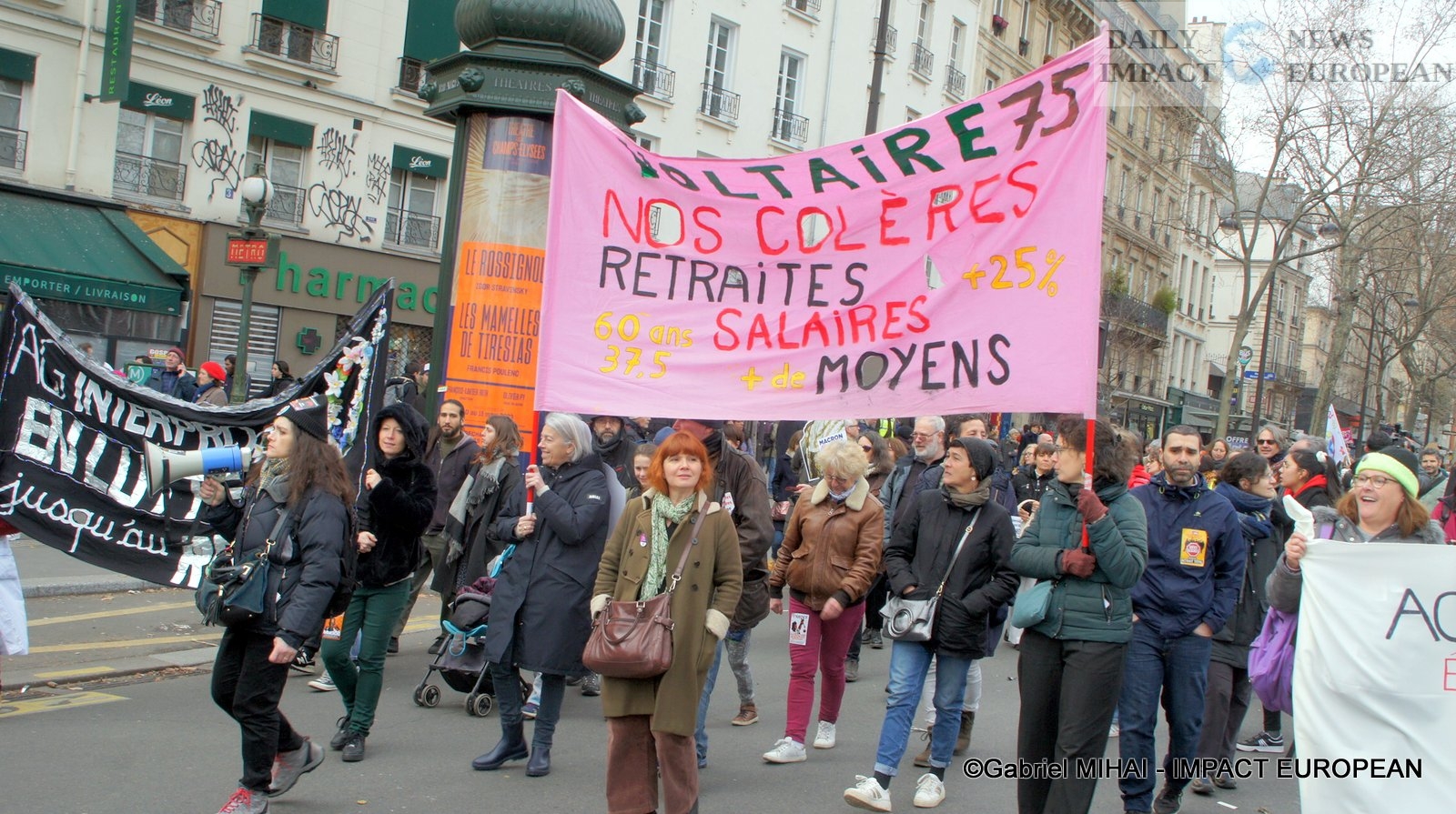





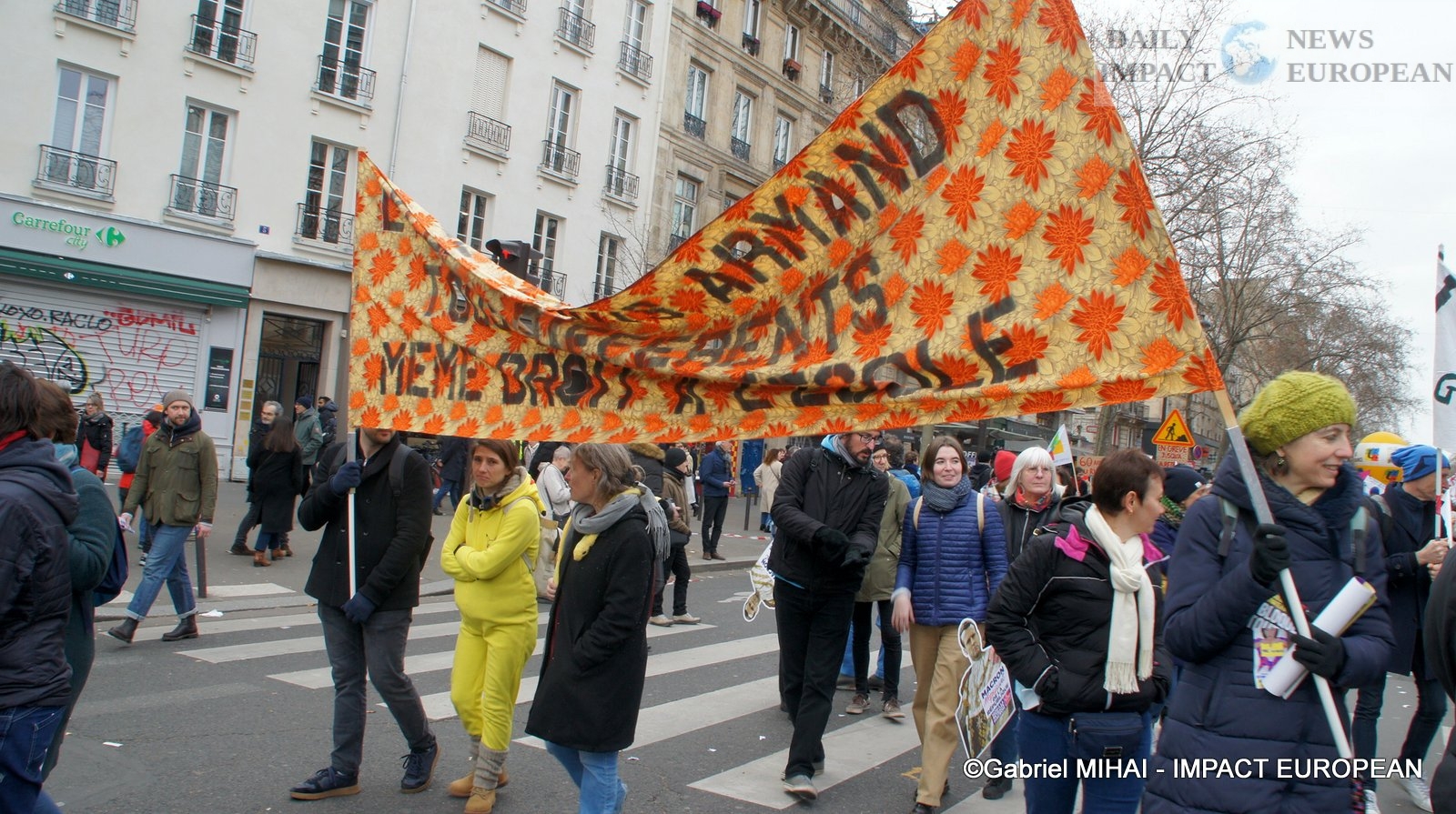
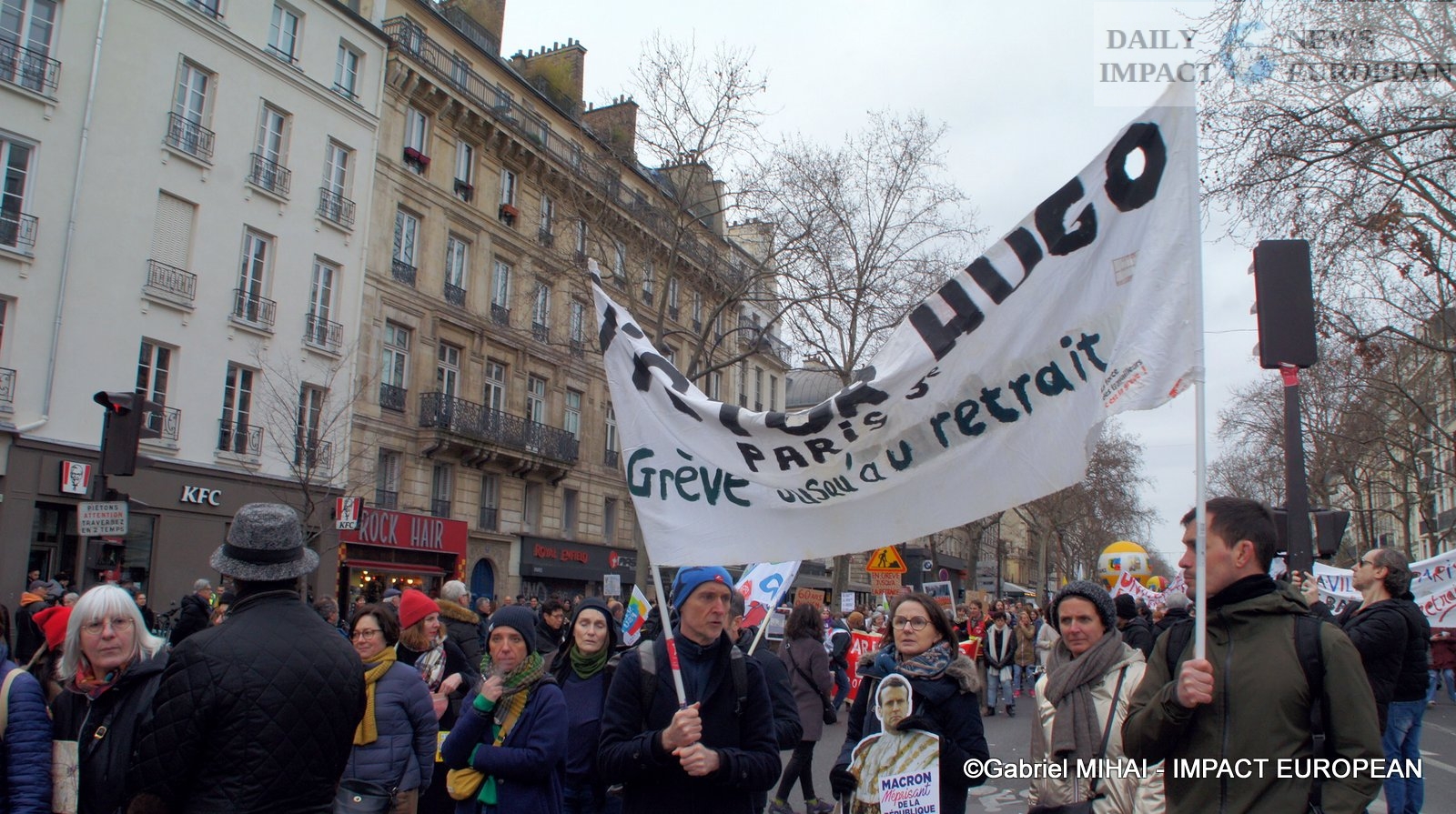
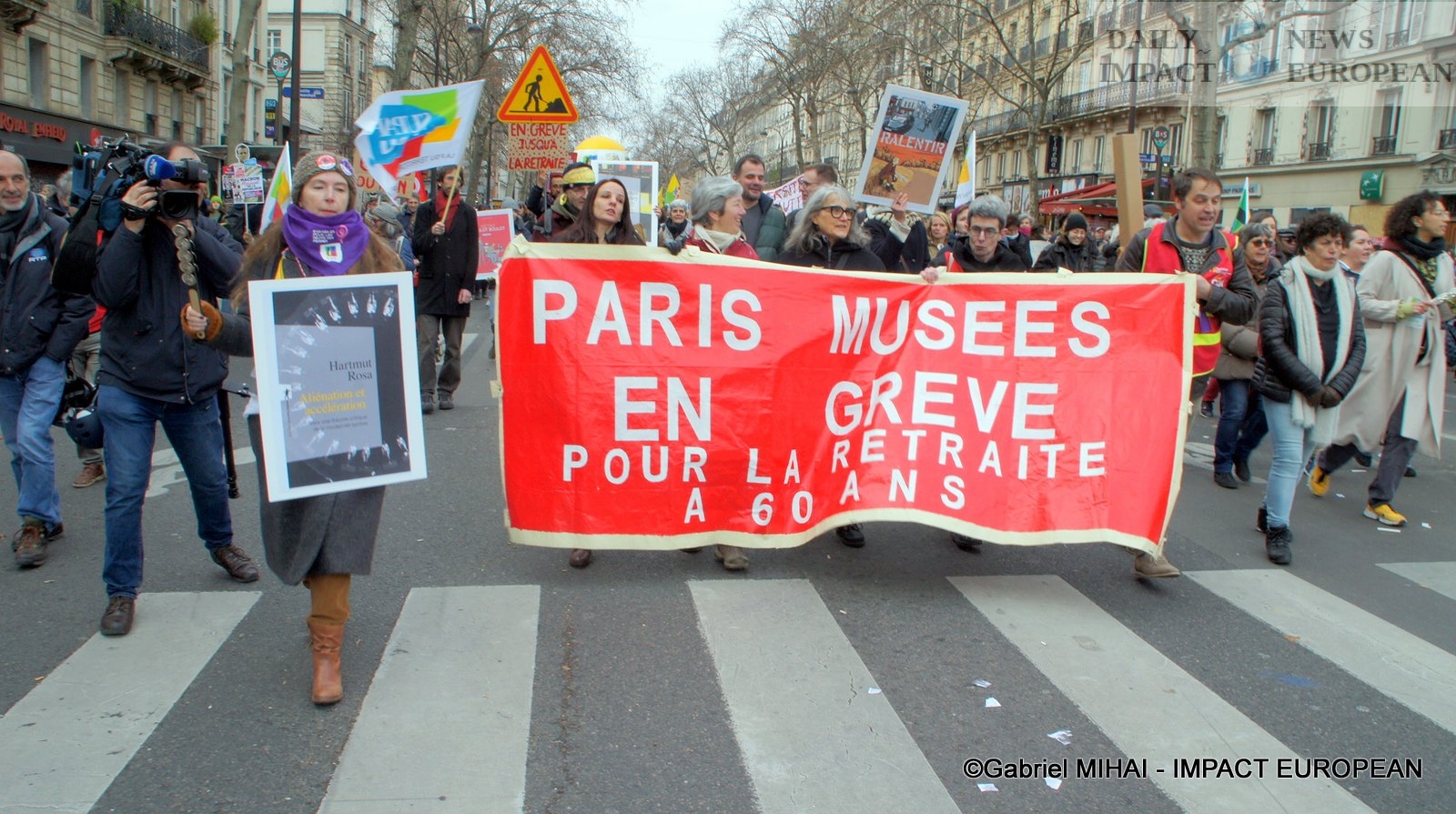
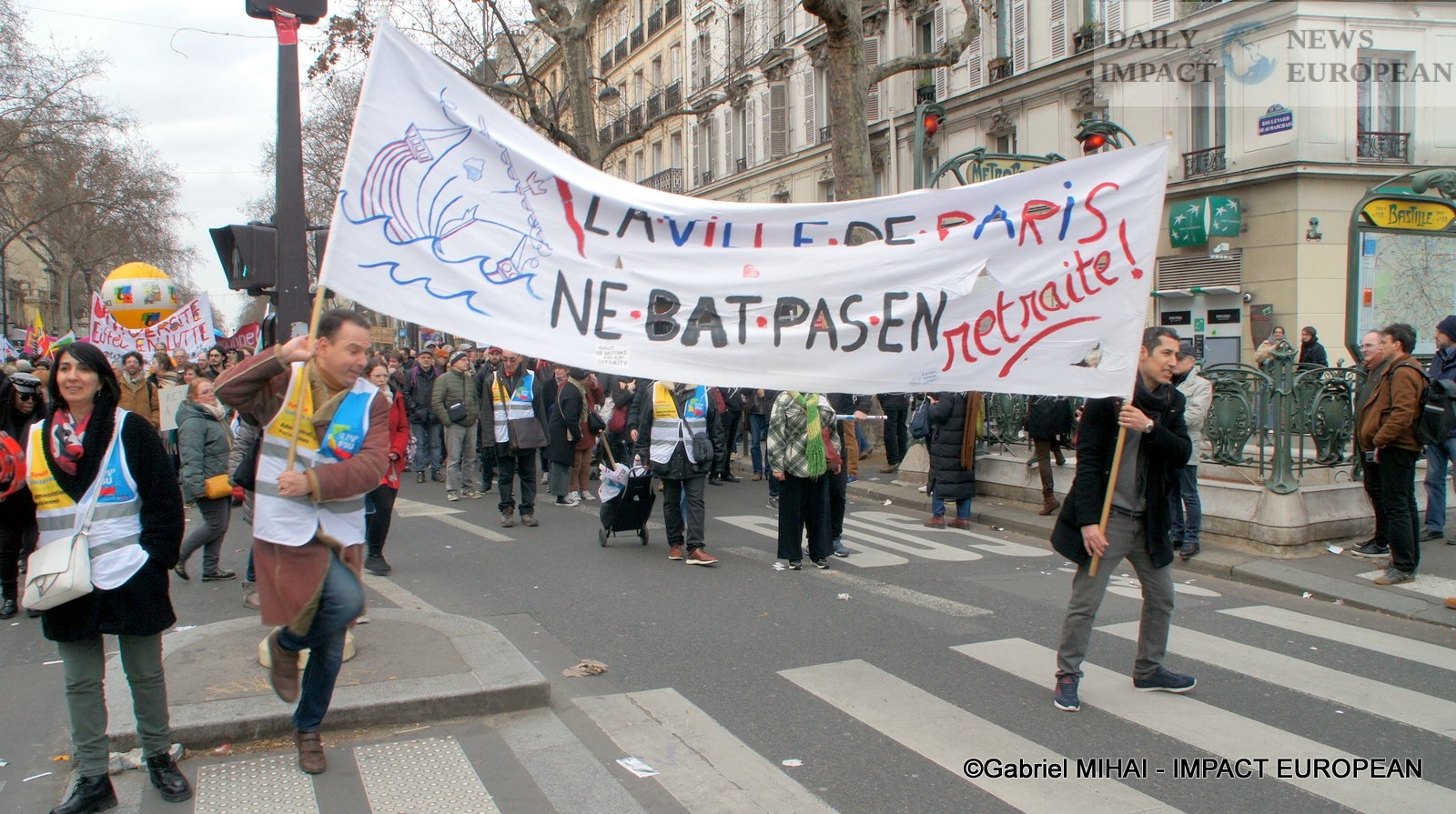
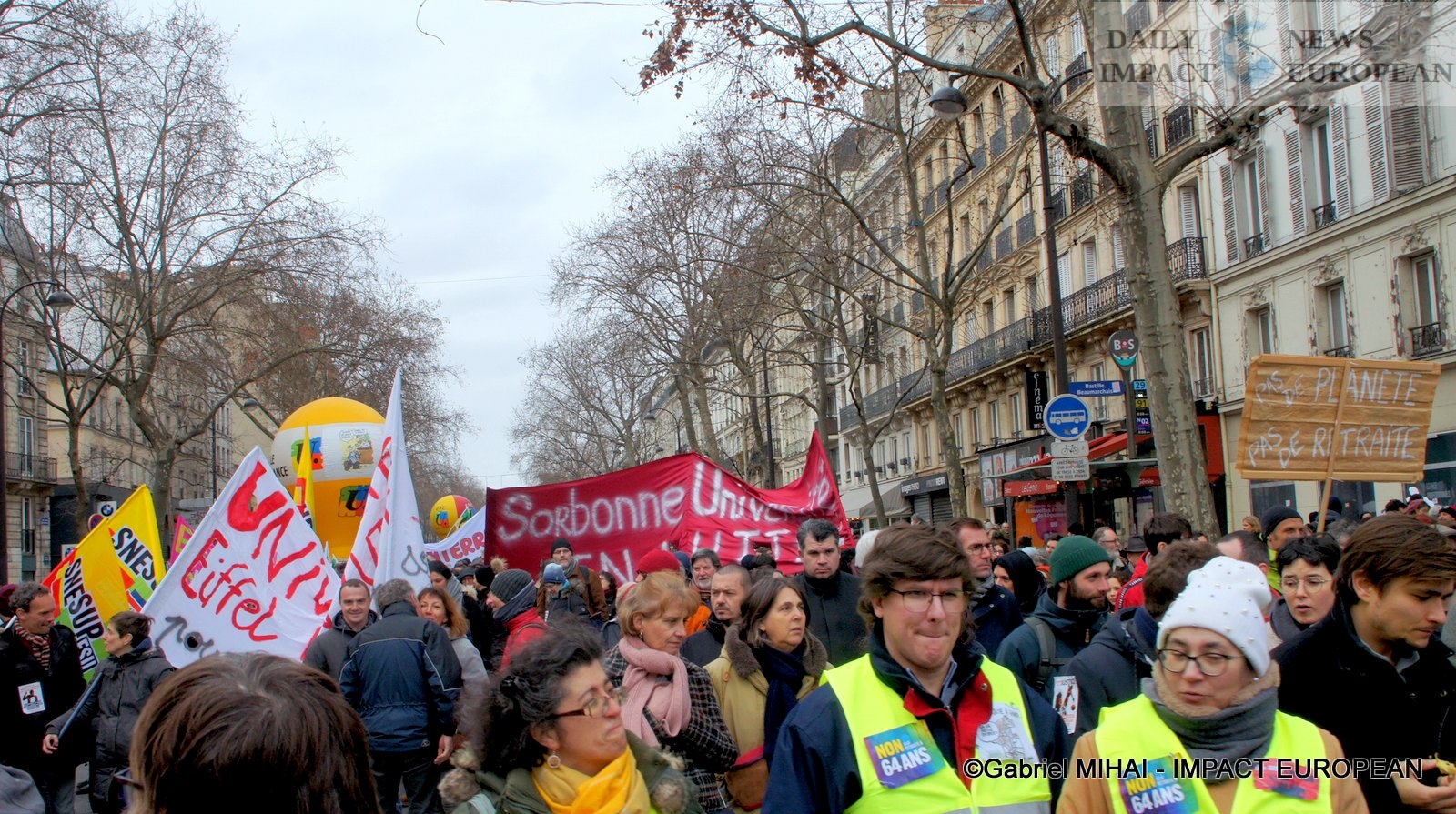

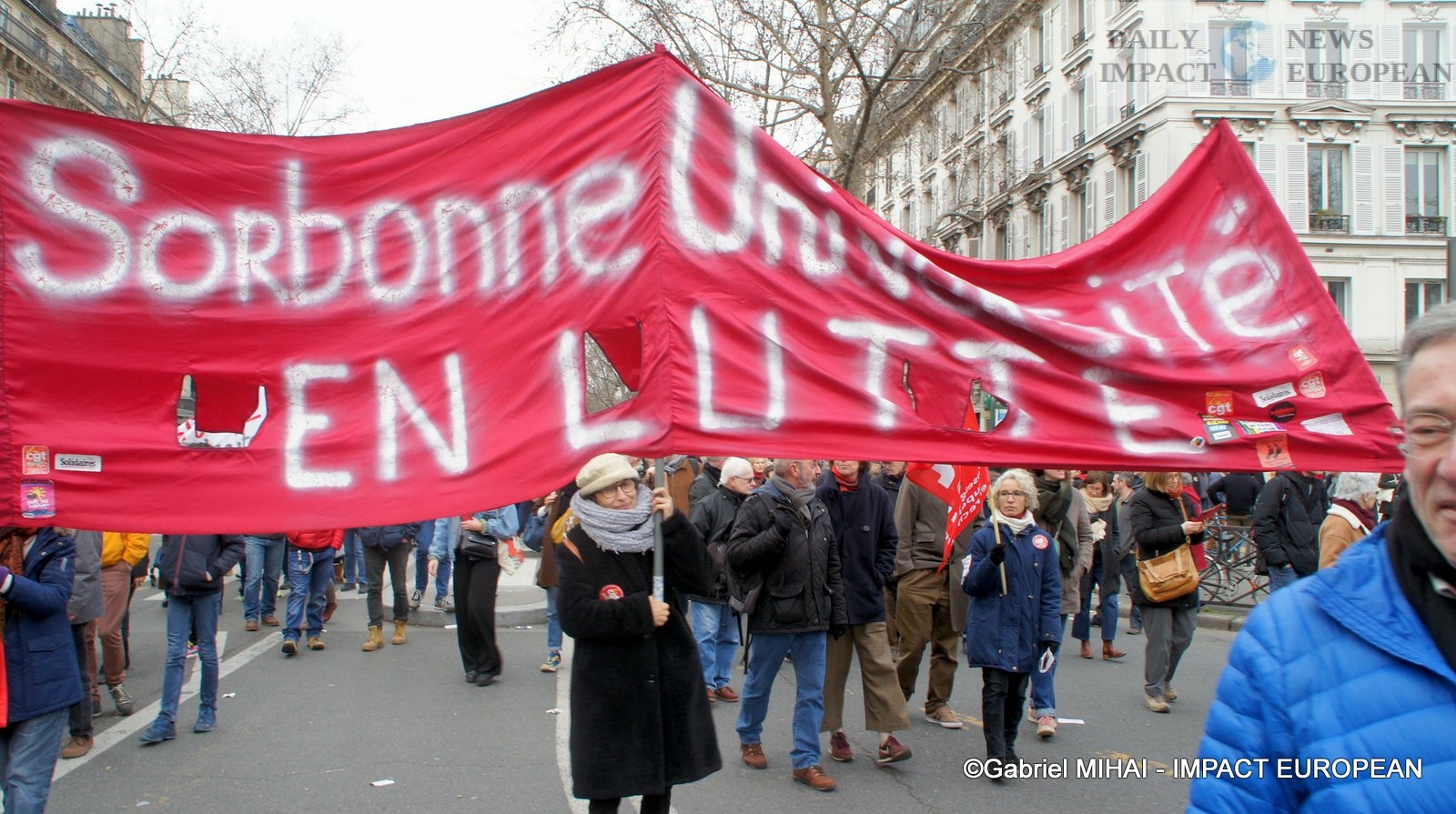
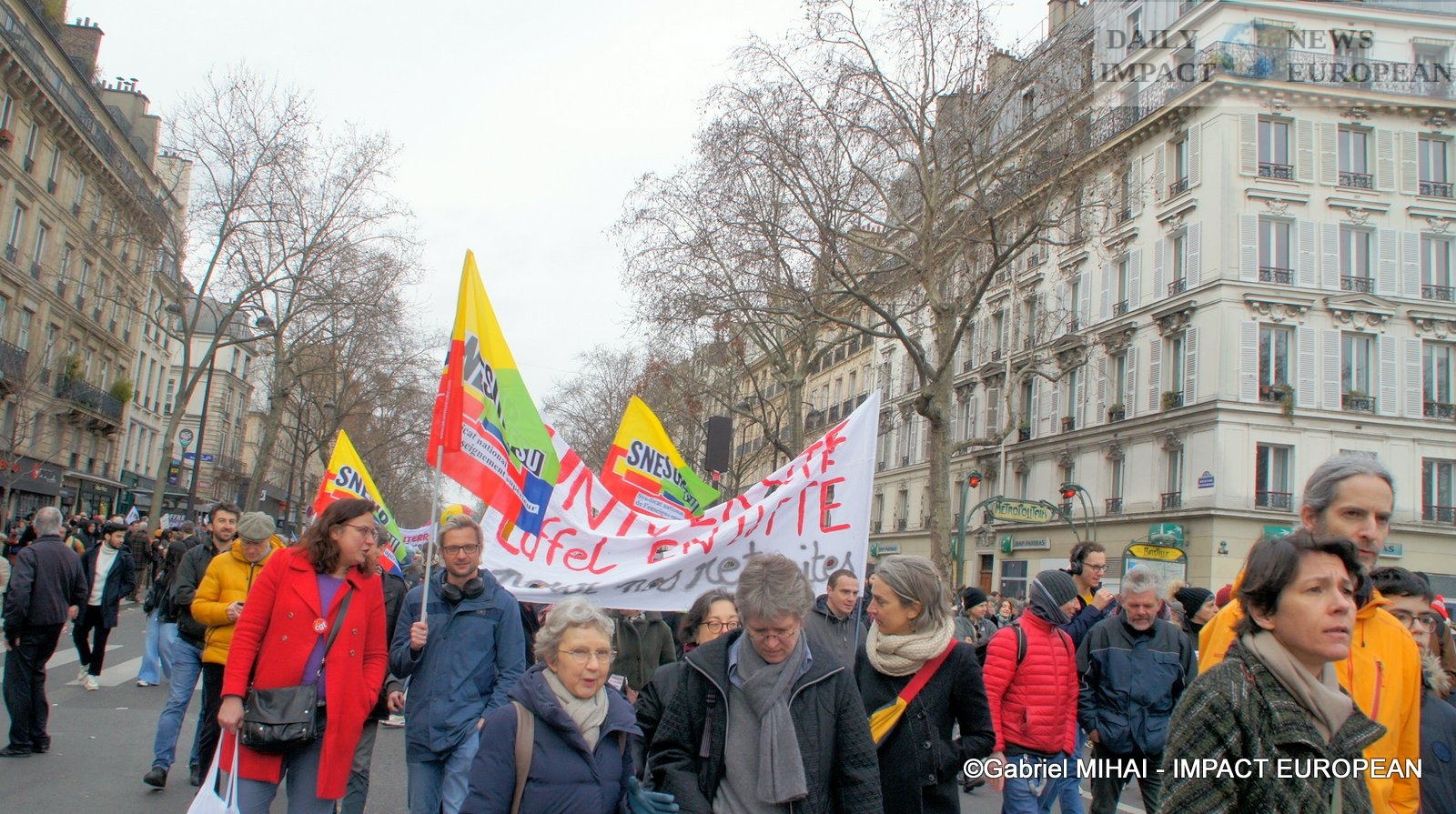
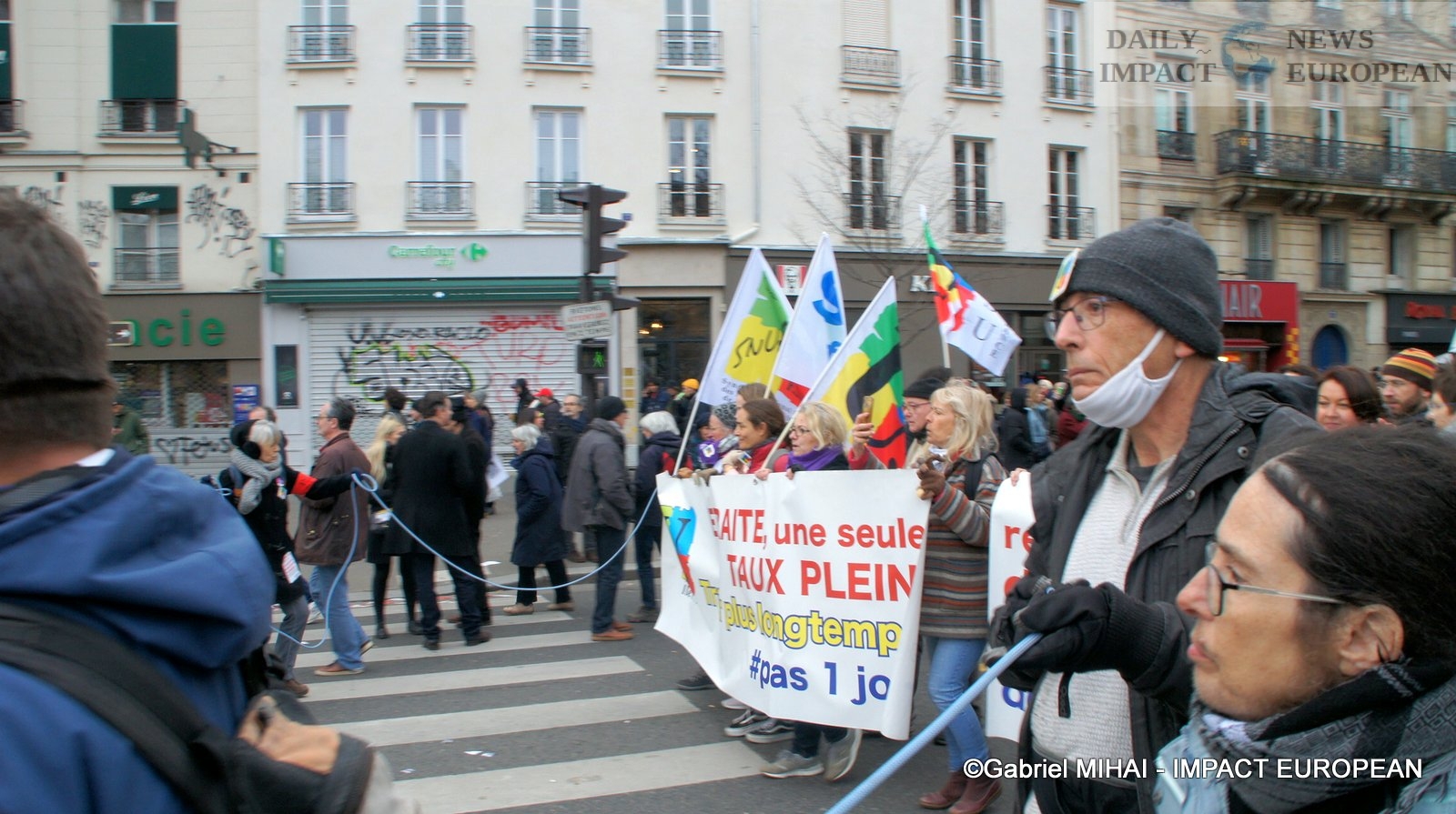
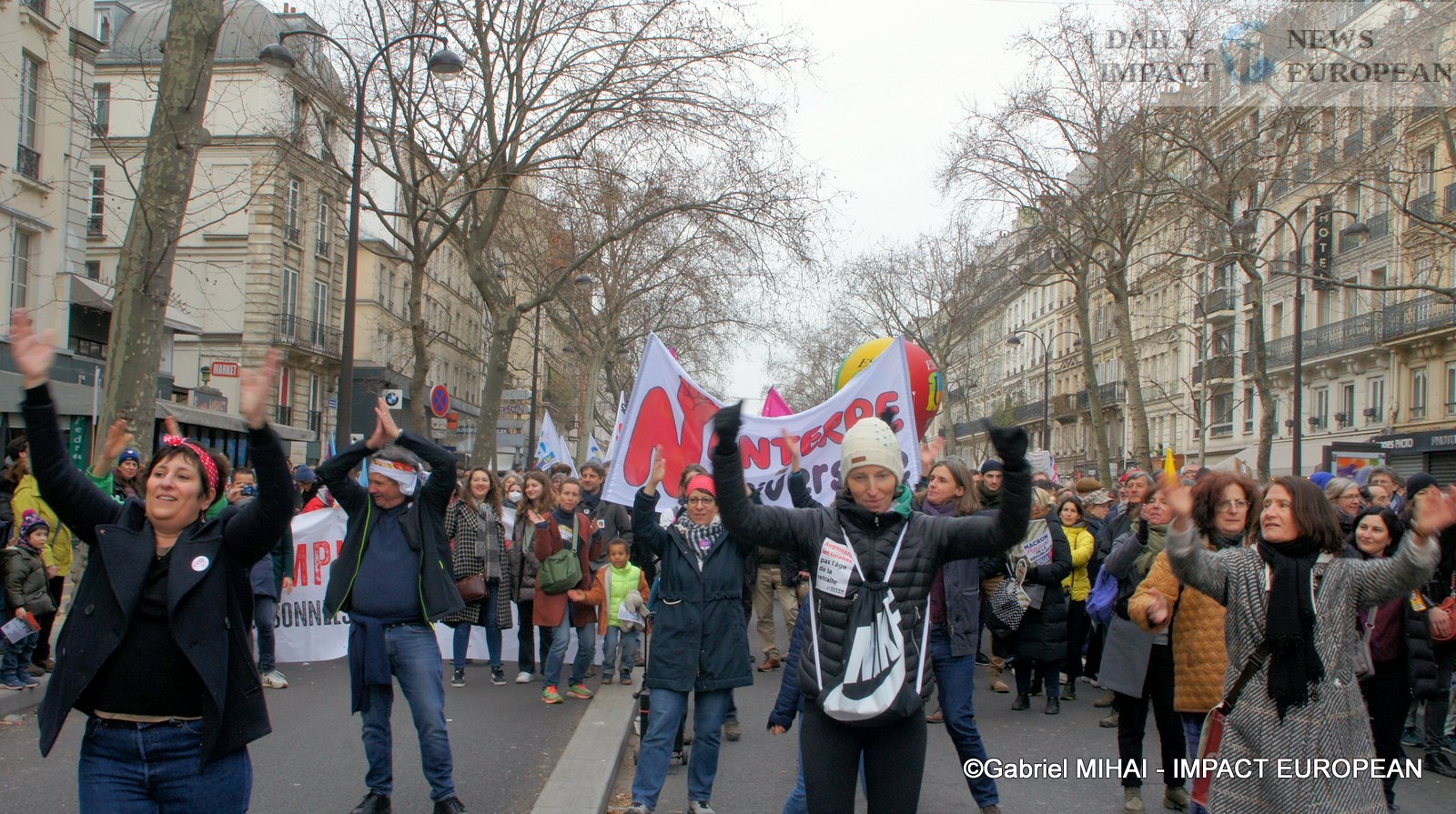
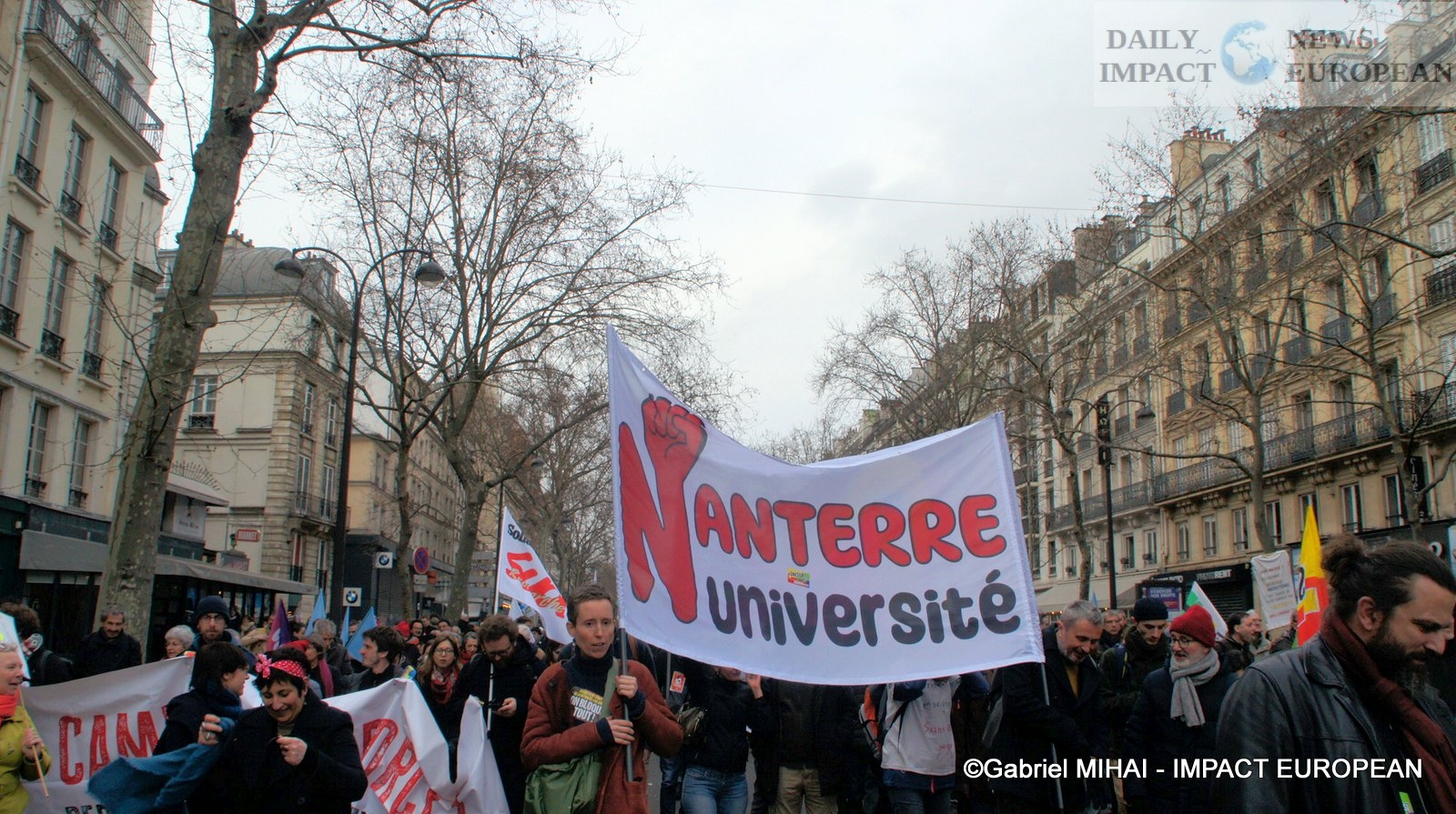









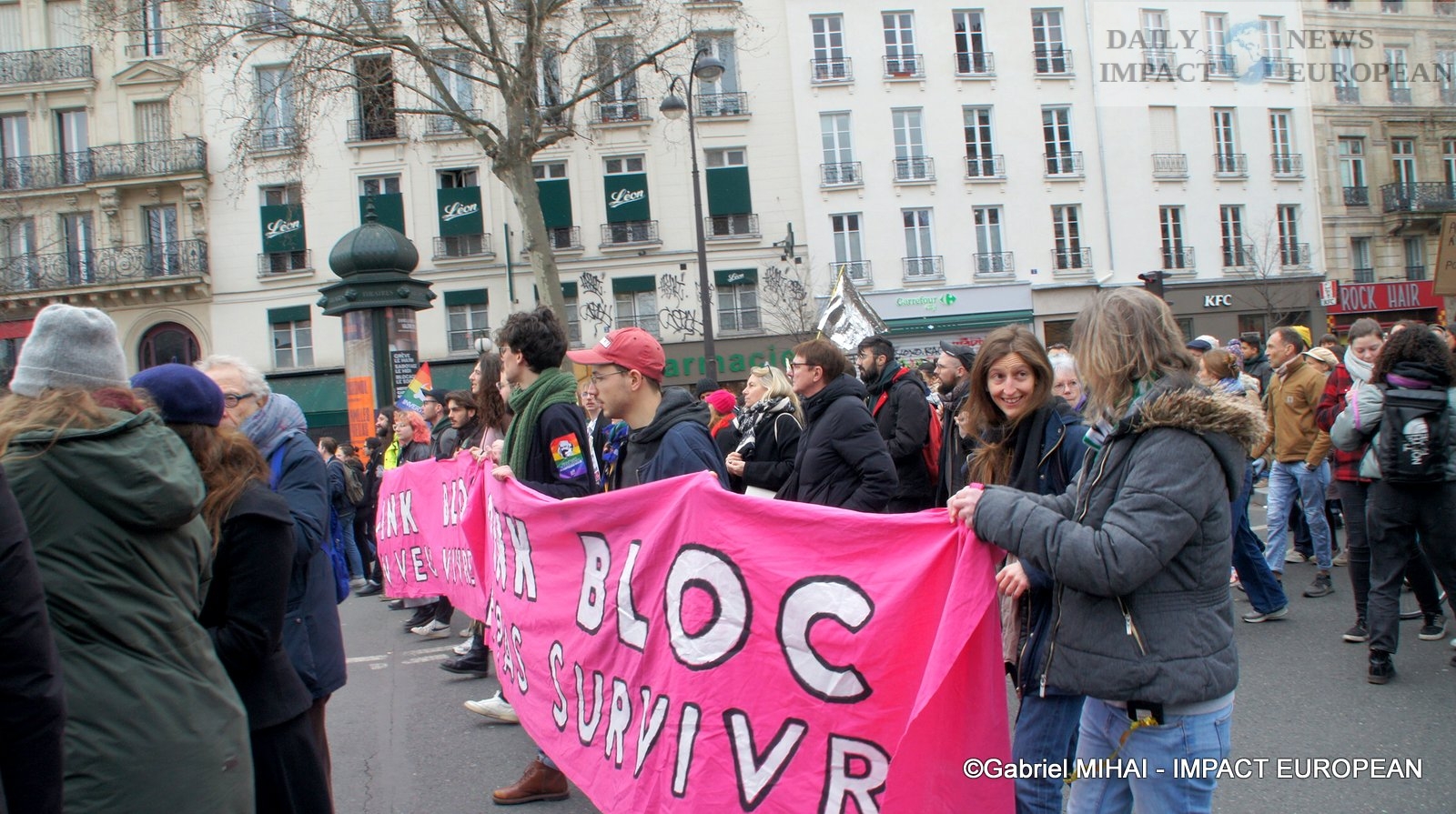

More Stories
Meeting between French and Israeli counterparts Emmanuel Macron and Isaac Herzog at the Élysée
“Dansong” at the Avignon Off Festival 2024
Olympic Flame at the Jardin du Musée Mac Val